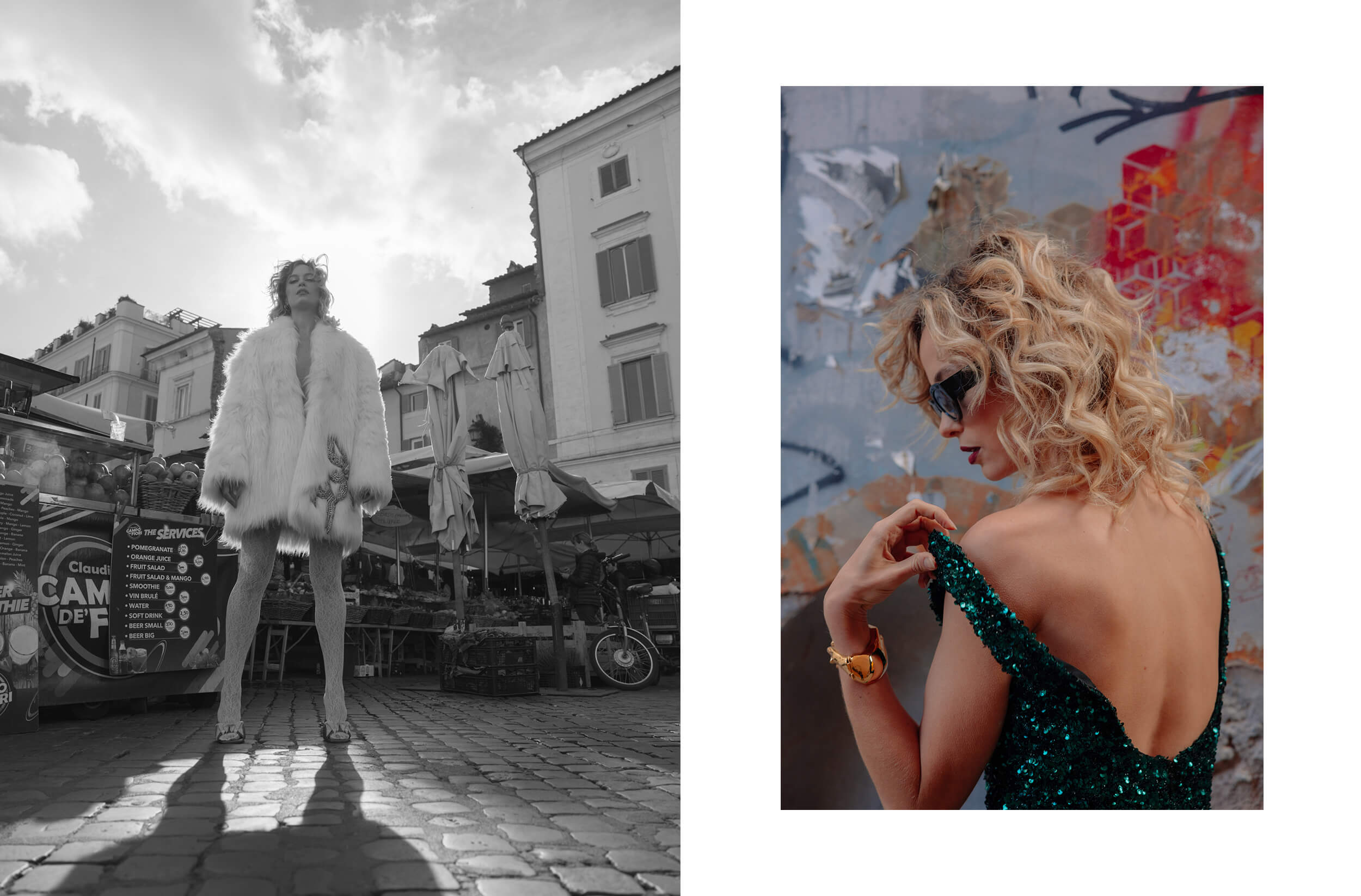Gaia Messerklinger, bold and empathetic in both her work and life, has once again raised the bar: in the iconic role of Moana Pozzi in the Netflix TV series “Supersex”, available from March 6th, she has tested herself by presenting her unique version of a woman who has made history. Sharing thoughts and memories, Gaia takes us into the heart of her most recent artistic and personal journey, revealing the details of the creative process and the emotions involved in portraying such a complex, well-known, and beloved character.
Amid anecdotes and reflections on contemporary society, we explore her connection with cinema, the challenges and self-discoveries, and the importance of “Supersex” in today’s cultural and social context: a “very rich, complex, and courageous” narrative is exactly what we need.
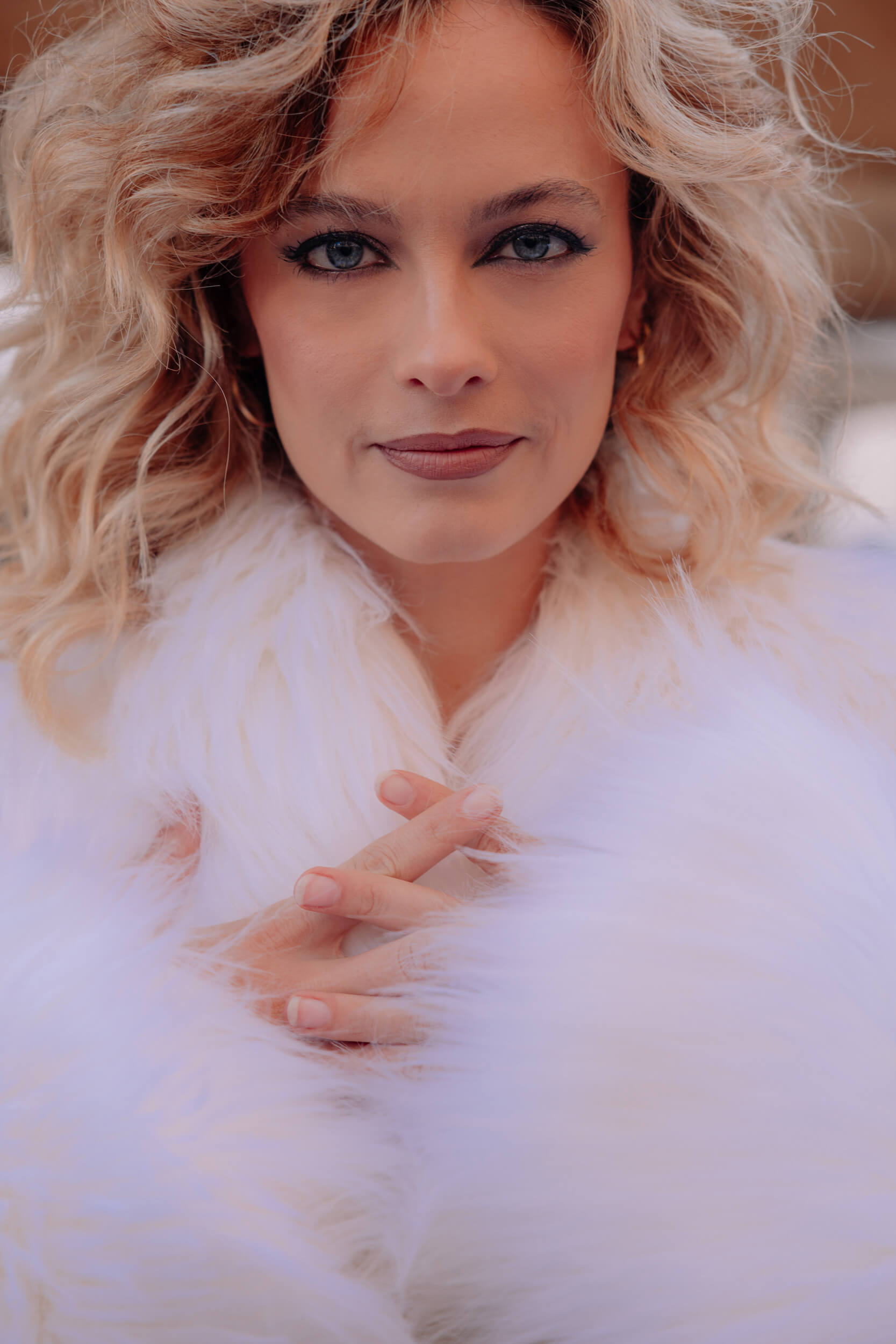
What is your first memory related to cinema?
More than a cinema-related memory, I have a vivid one associated with a film. I was in middle school, around 13 years old, and I watched Baz Luhrmann’s “Romeo+Juliet” on TV. I fell madly in love with it and recorded the film on a VHS tape that became a kind of cult object. I often brought it to school, and if I visited a friend’s house, we watched the film together. I don’t know how many times I watched it, and how many friends I forced to watch it with me (by the way, it’s two hours long!). But that film had something magical. I remember that every time it ended, I felt like I had taken a journey, overwhelmed by emotions and the power of images.
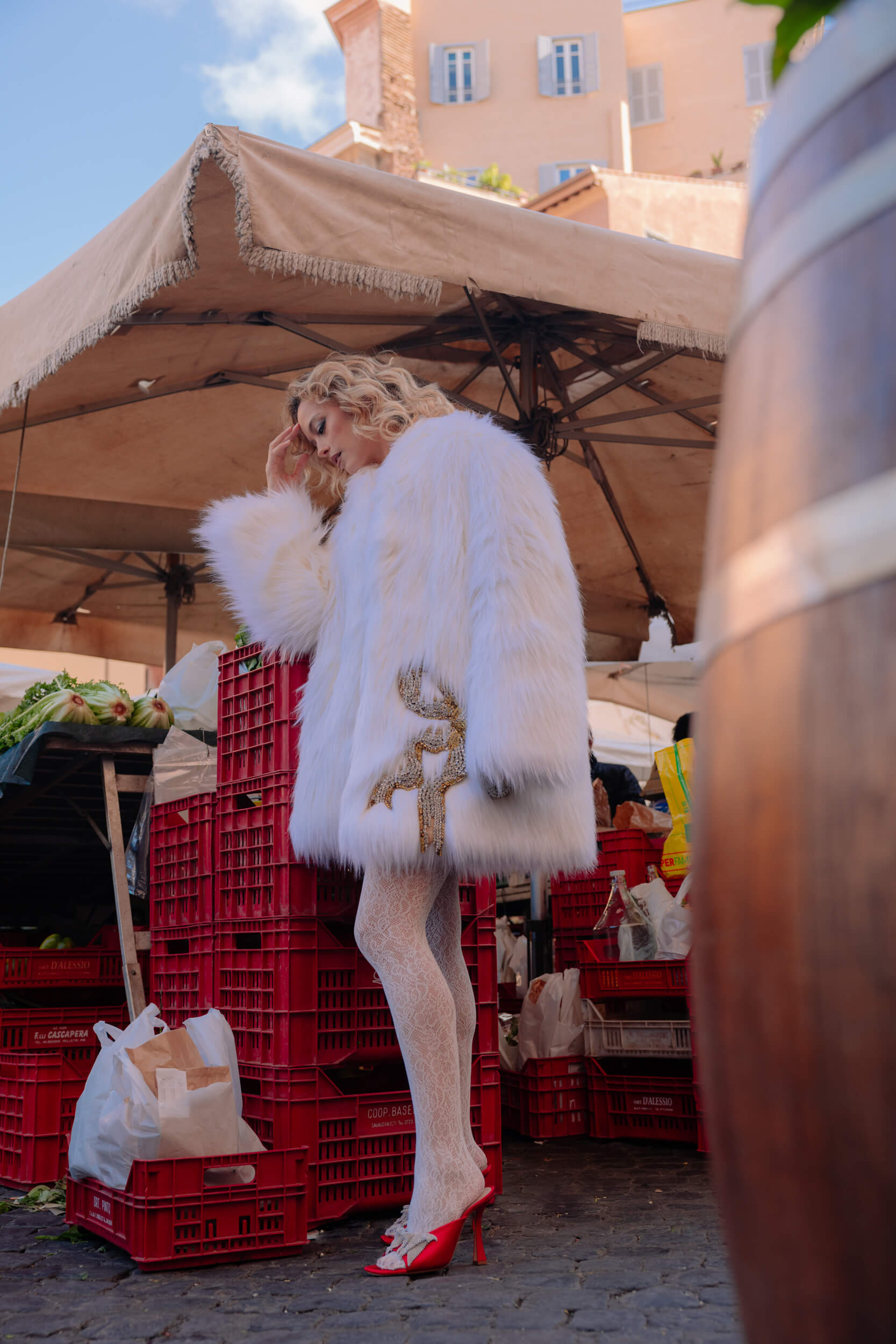
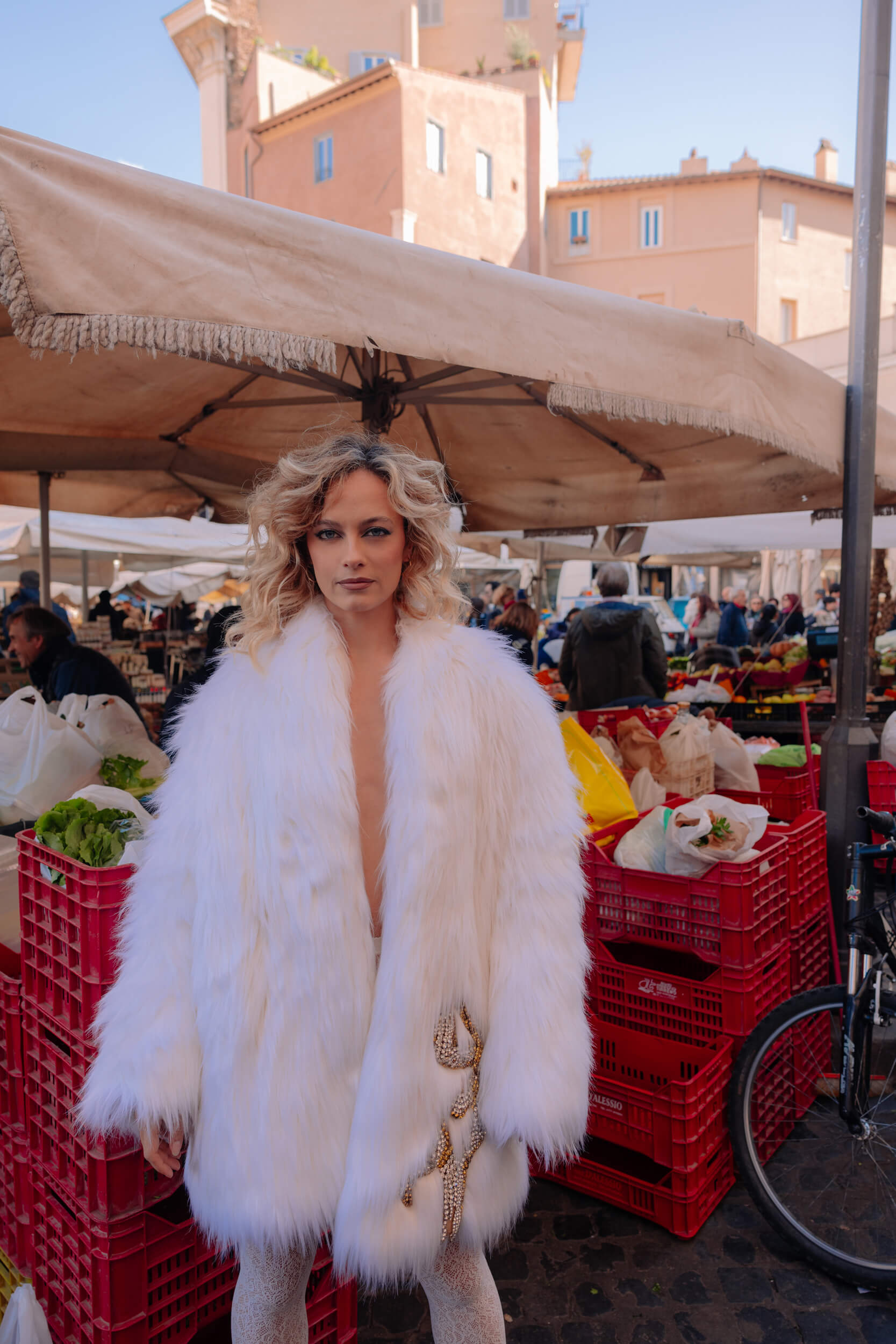
What was your initial reaction when you received the script for “Supersex”, and how did you approach the challenge of portraying such an iconic character as Moana Pozzi?
When I first read the script, I was fascinated, especially regarding Moana’s scenes. Francesca Manieri chose a highly elevated, metaphorical, and rarefied language for Moana, which made me very happy because it gave a very precise identity to Moana’s narrative, doing justice to the complexity and intelligence of this woman.
I don’t hide that, in the beginning, along with the joy of winning this role after a very long audition process, I experienced moments of “terror“. I felt the responsibility of being part of such an ambitious project and playing a real, controversial, loved, judged, and praised person for the first time. However, this fear was a very important driving force; I love challenges and tried to raise the bar, first and foremost with myself.
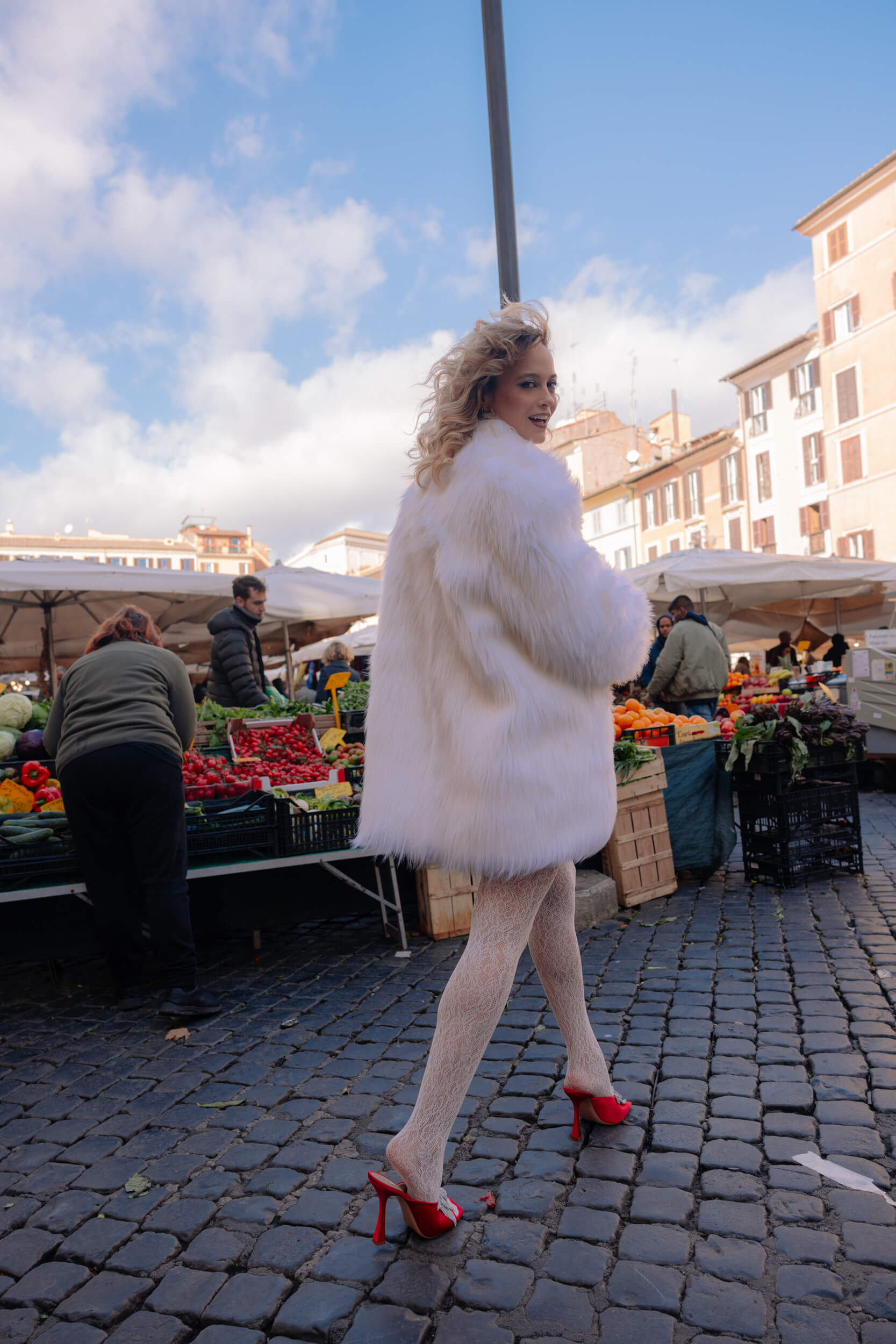
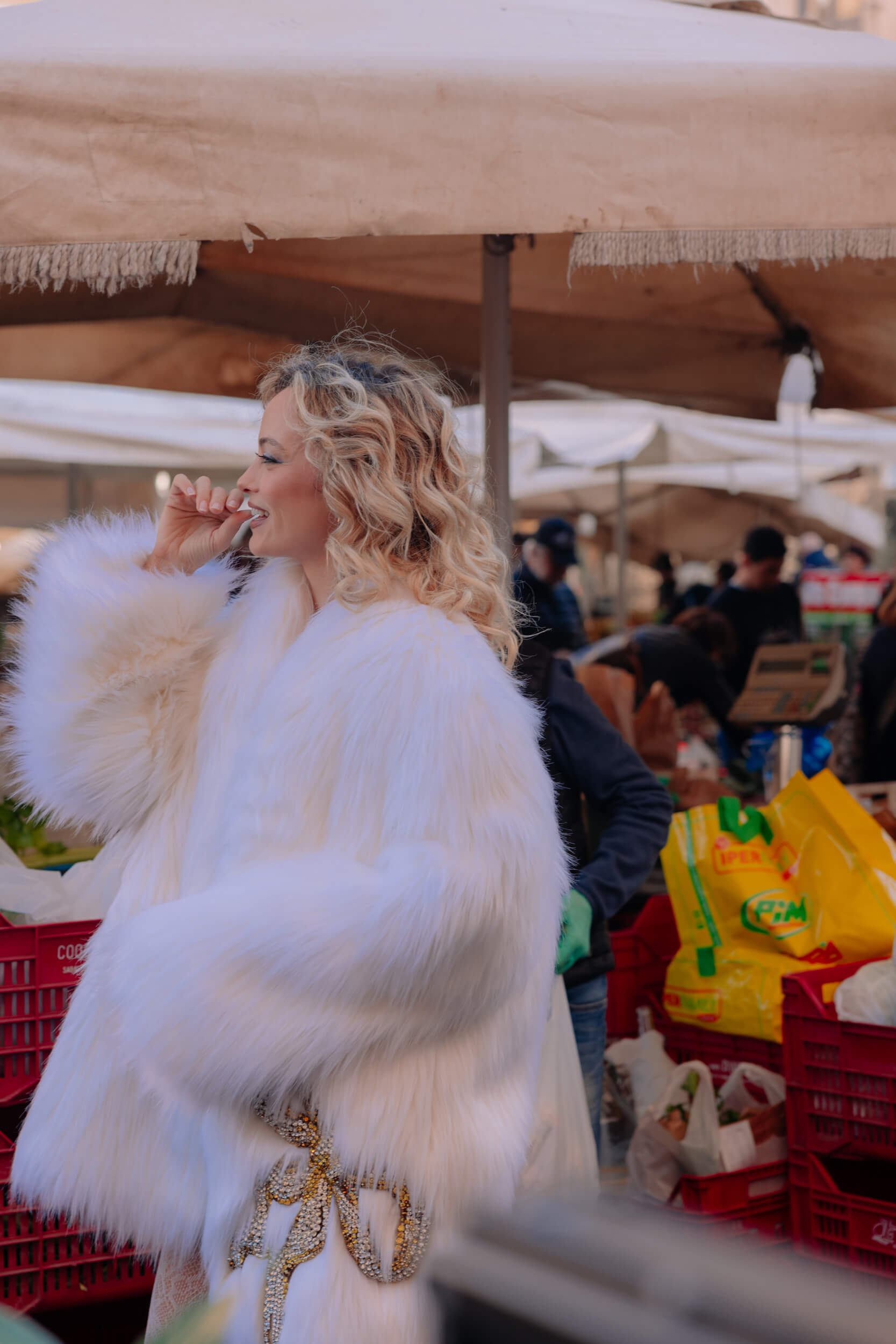
What did you know about her when you started, and what was the biggest discovery you made about her life?
When I started, I actually knew little, and I wasn’t even aware of her success and how much she is still loved by her audience. I began to delve into her life during the audition phase (which lasted about 4 months), and then, when I got the role, I searched for all the existing video material about her and watched it for hours and hours. Rather than knowing the details of her life, it was important for me to observe her, listen to what she said, grasp what she didn’t say, and capture every glance and movement that told me something about her. Everyone has their own vision of this woman, and I needed to find mine.
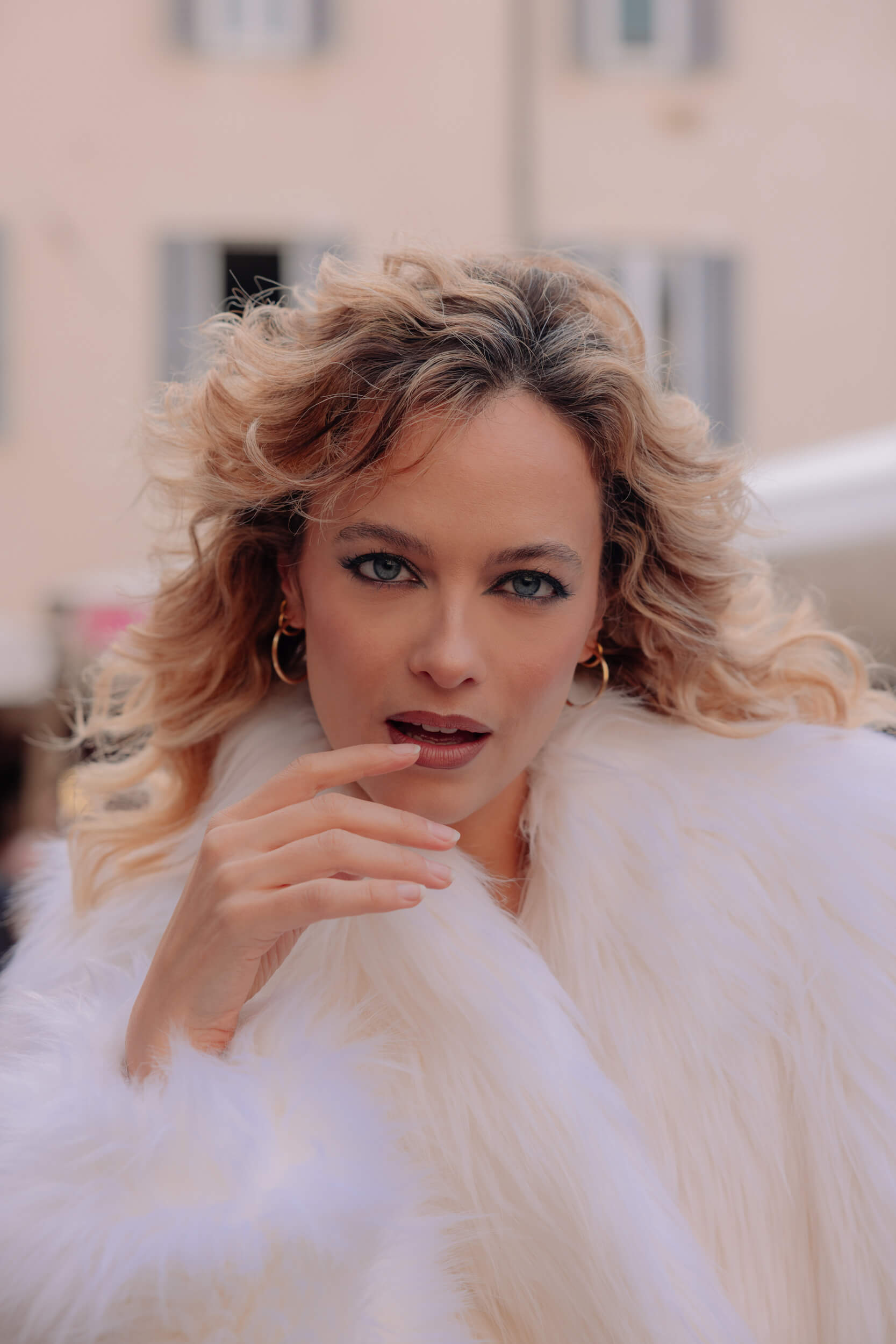
“Everyone has their own vision of this woman, and I needed to find mine.”
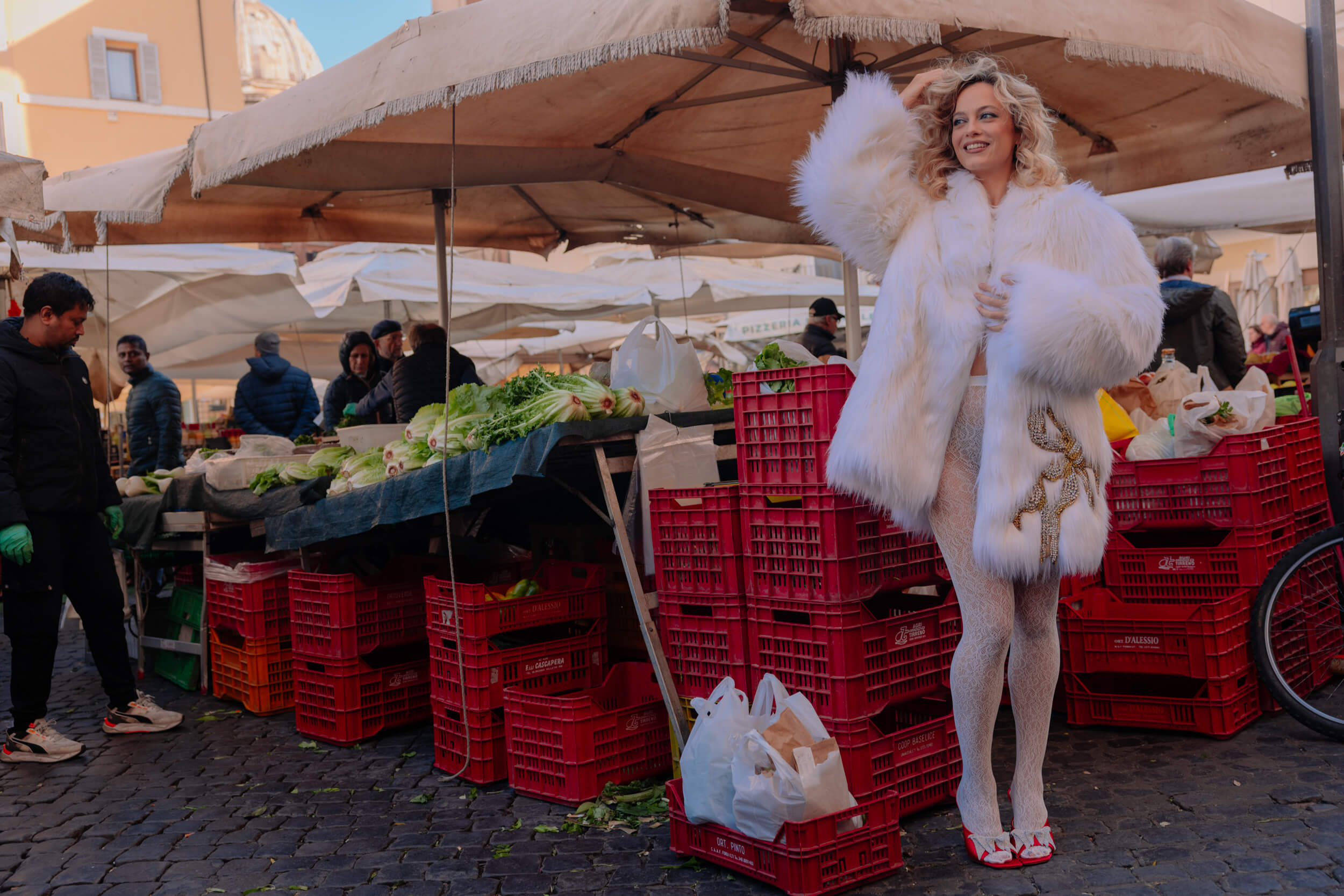
And the biggest discovery you made about yourself, portraying her?
At a certain point in character preparation, I felt that something was missing. The framework was there and quite charming, but the painting, the substance, was lacking. I felt the need for a deeper connection to this woman’s experiences, allowing me to empathize with her on a more visceral level. I found this connection by chance, rereading old pages I had written as a teenager, taking me back to a moment in my life of which I had no memory, seemingly unrelated to what I was looking for. However, I found a very effective interpretation that allowed me to feel much more connected to Moana’s character.
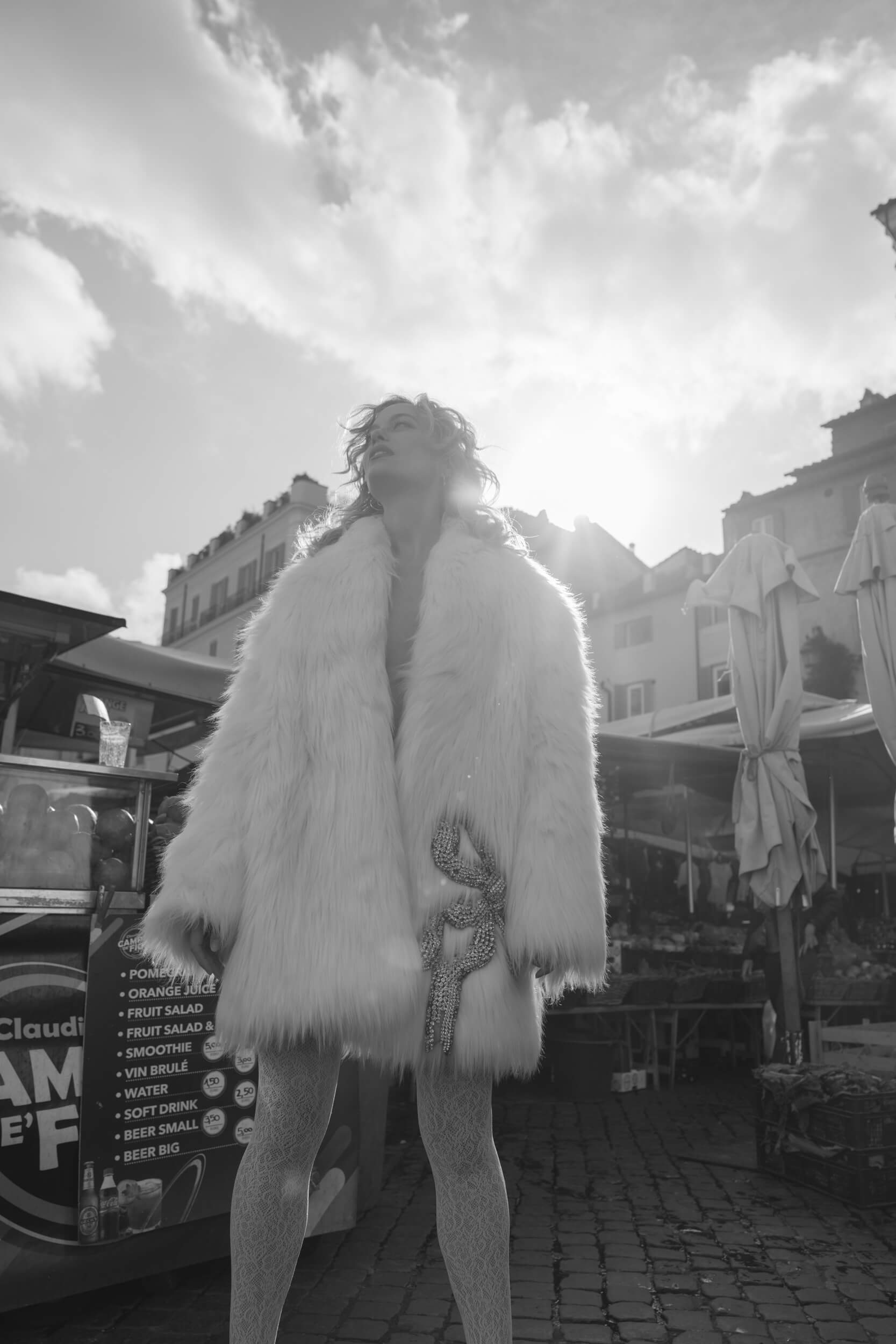
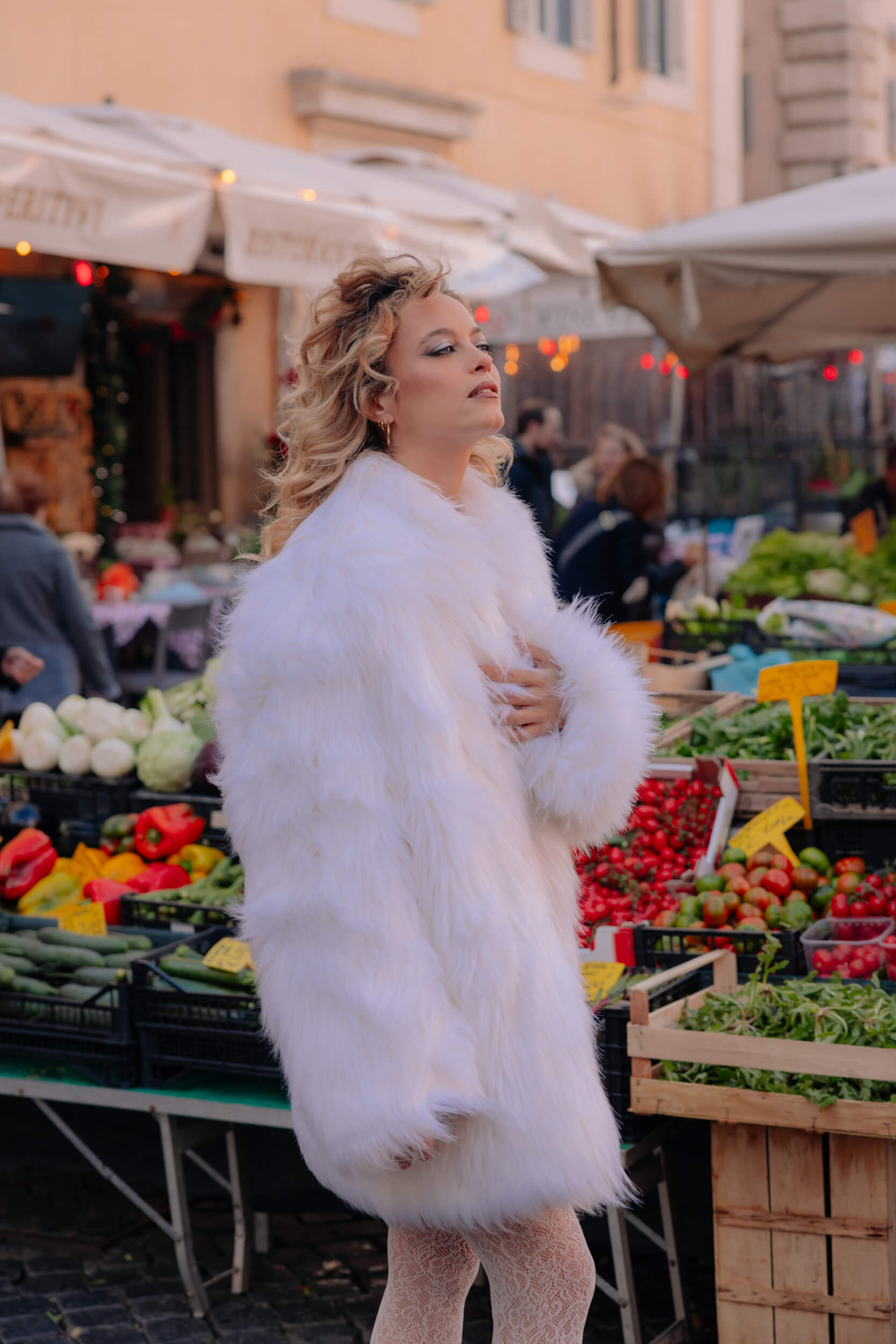
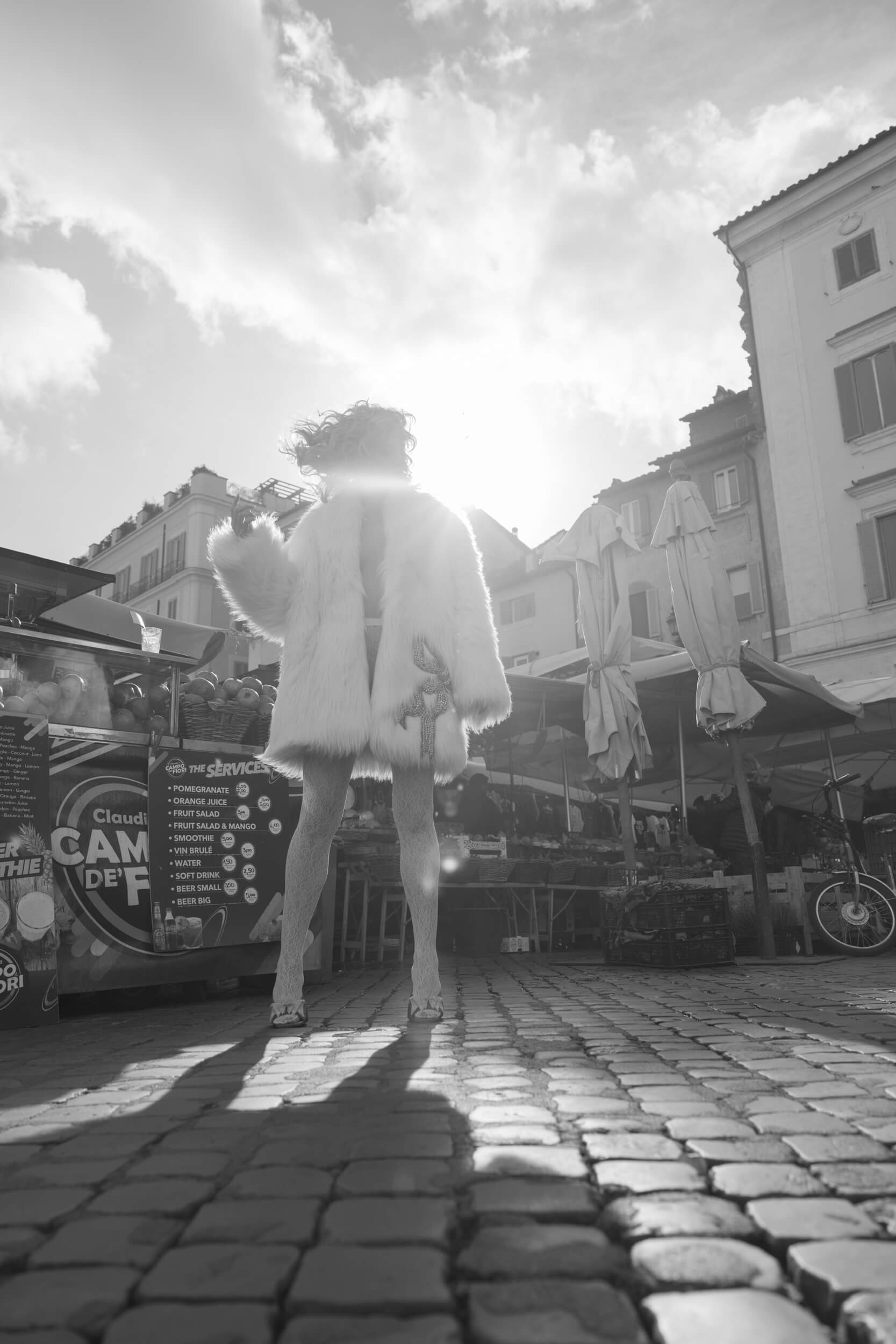
“Supersex” explores unseen aspects of Rocco Siffredi’s life. How does your interpretation contribute to bringing these aspects to light authentically?
One of the things I loved about the script is that, in a few scenes, it tells the story of the friendship between Rocco and Moana, which I believe is a somewhat unusual perspective for both. When Rocco arrives at Diva Futura, Moana is already a character, a diva, and she takes him under her protective wing. They recognize each other, and understand each other, both paying the price of freedom with profound loneliness.
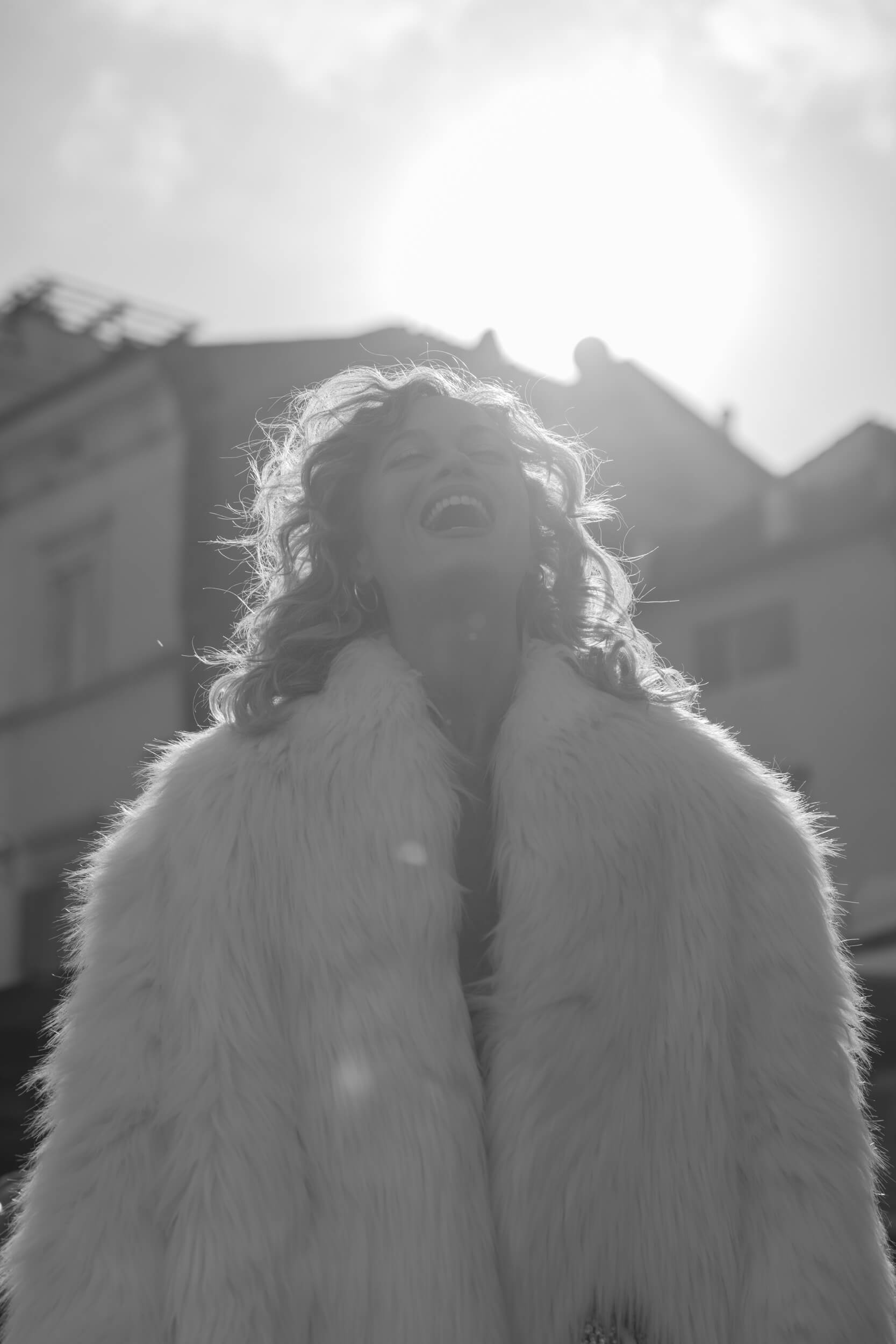
Social and cultural contexts are also important for the authenticity of a series. How does “Supersex” address these elements, and how did you incorporate them into your perform
“Supersex” unfolds in the social and cultural framework of Italy in the late ’80s and early ’90s, where engaging in porn was profoundly subversive. We are talking about a very bigoted society, with a sense of morality and modesty still strongly tied to a Catholic view. It was a society where “you do it, but you don’t talk about it,” while Rocco and Moana did it and talked about it shamelessly. The series portrays the difficulty of making such a choice in such a context, being considered outcasts, and experiencing pain and loneliness. Moreover, judgments and rejection often came primarily from their own families. On the other hand, there is the desire to live one’s sexuality openly and, through their work, convey a message of sexual liberation, recognizing it as a natural component of human life, free from judgments and hypocrisy. Moana embodied this strongly, aware that her choice of freedom came with a high price, but at the same time, it was her path, and she would follow it despite everything, trying to enjoy every moment.
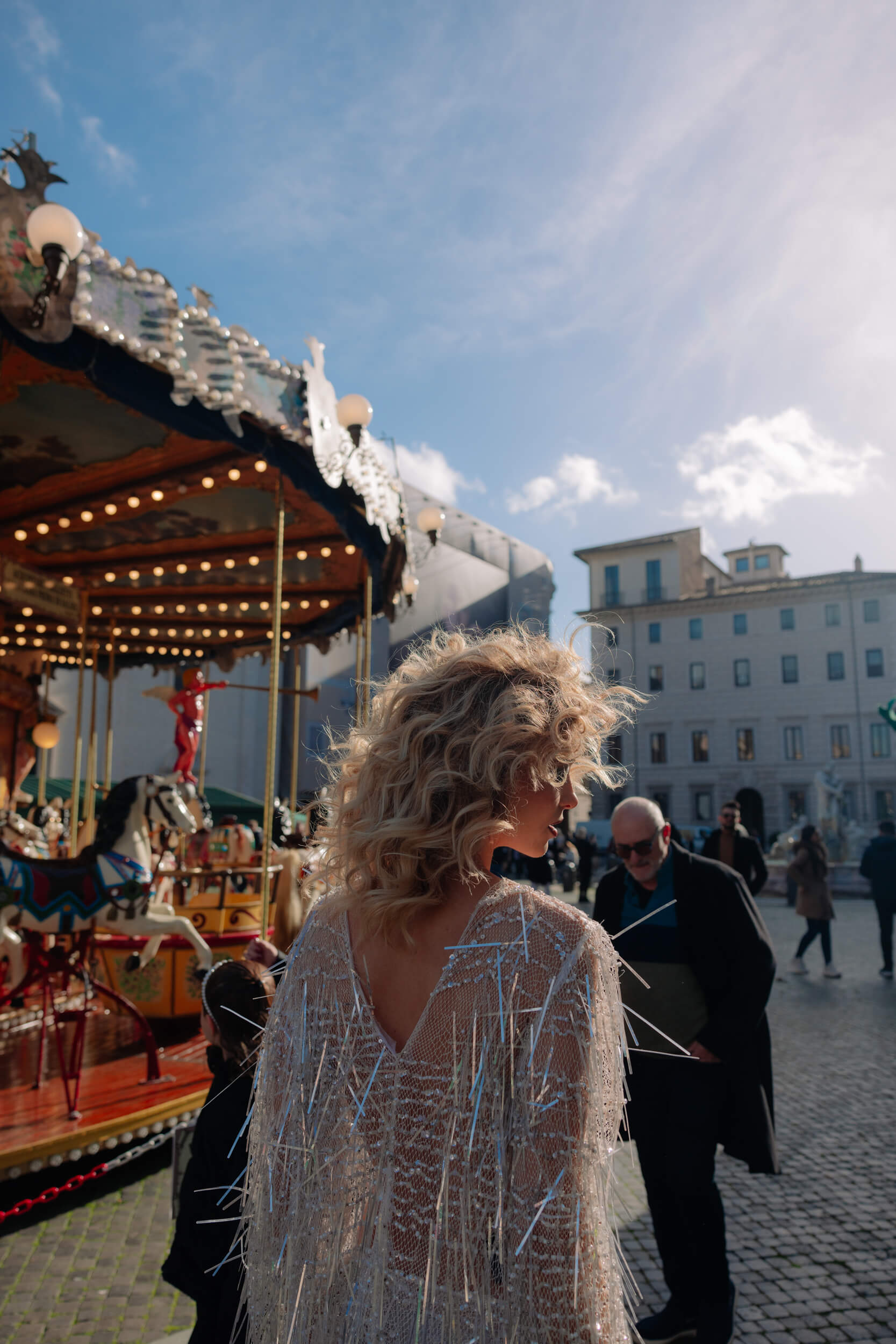
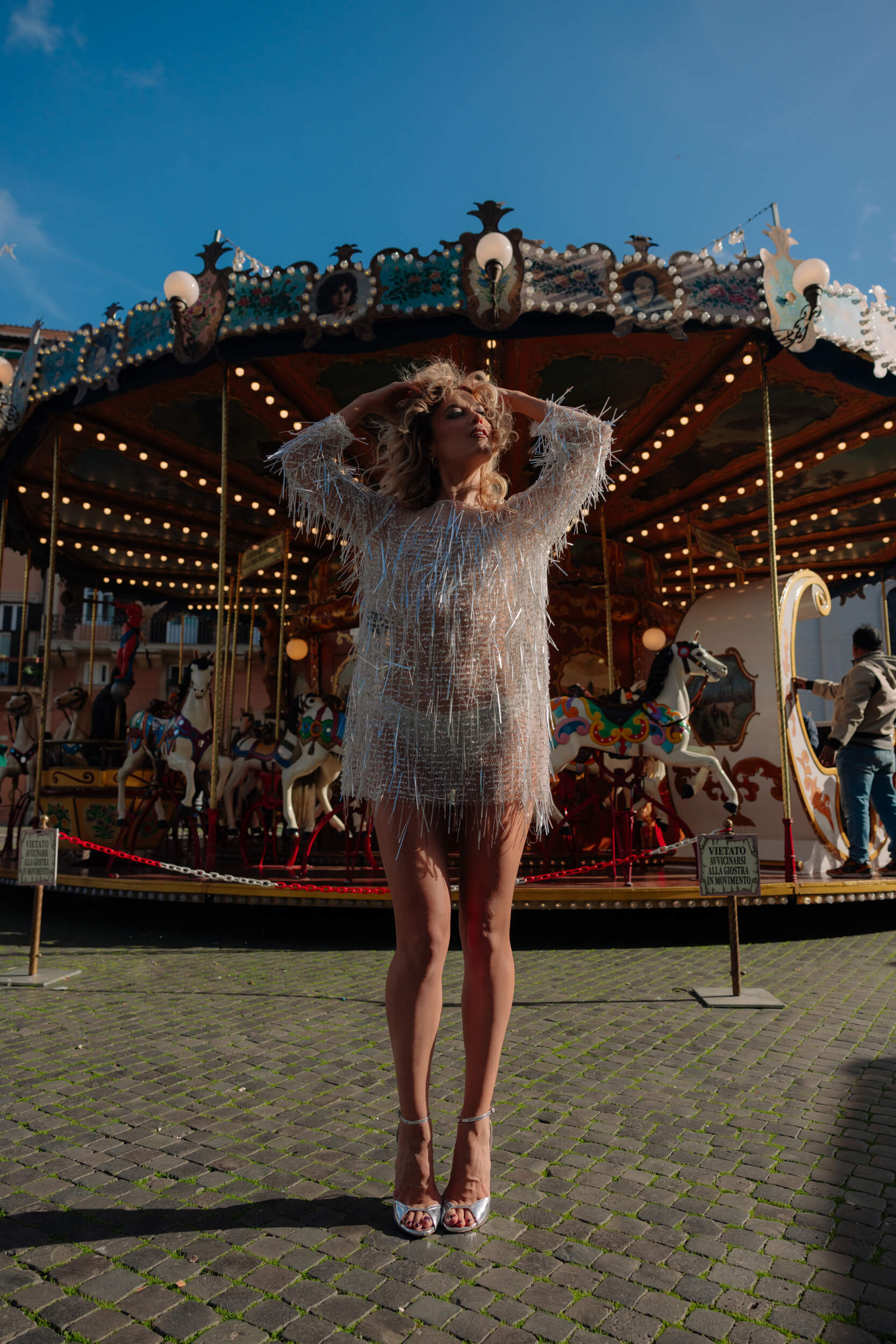
“A message of sexual liberation”
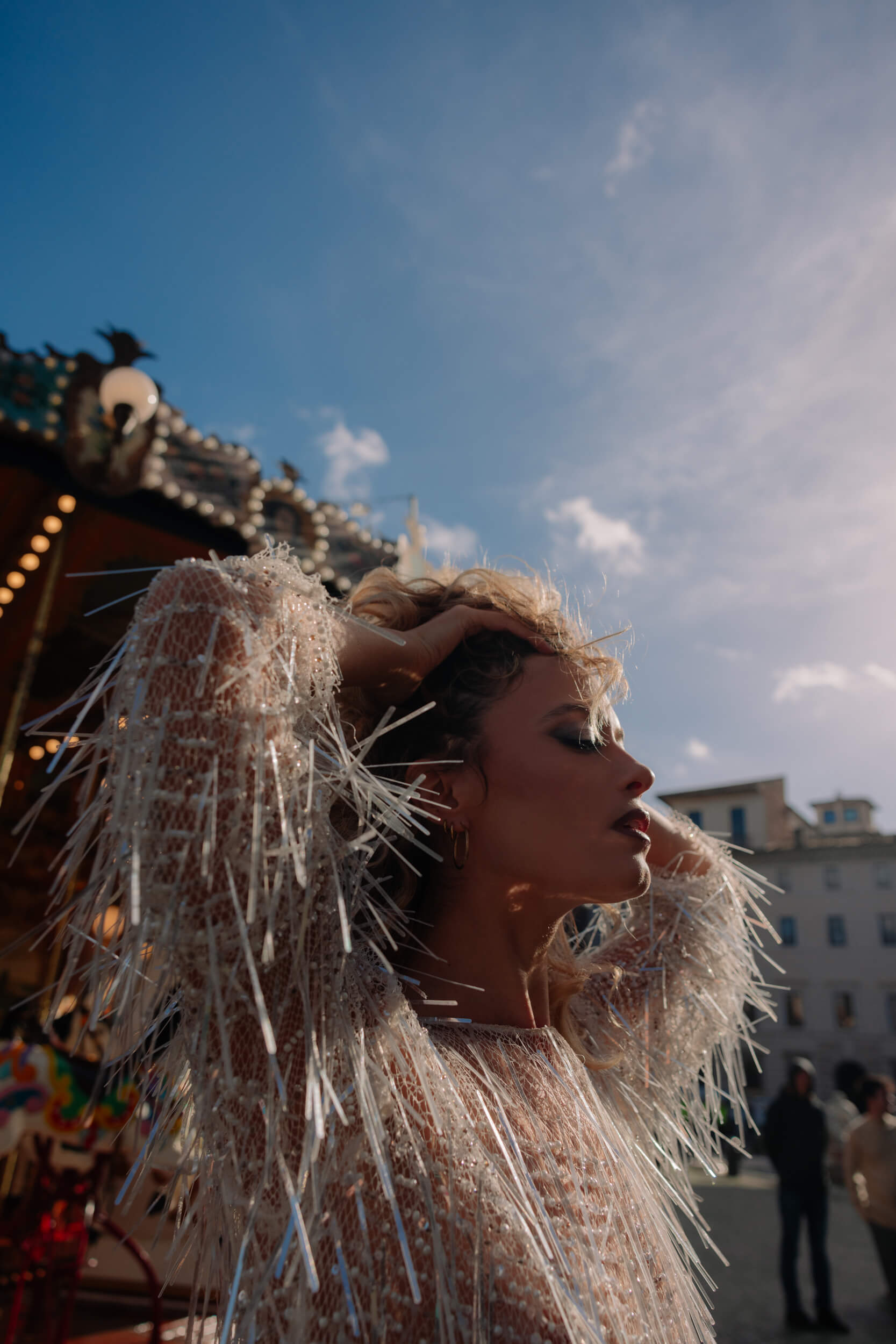
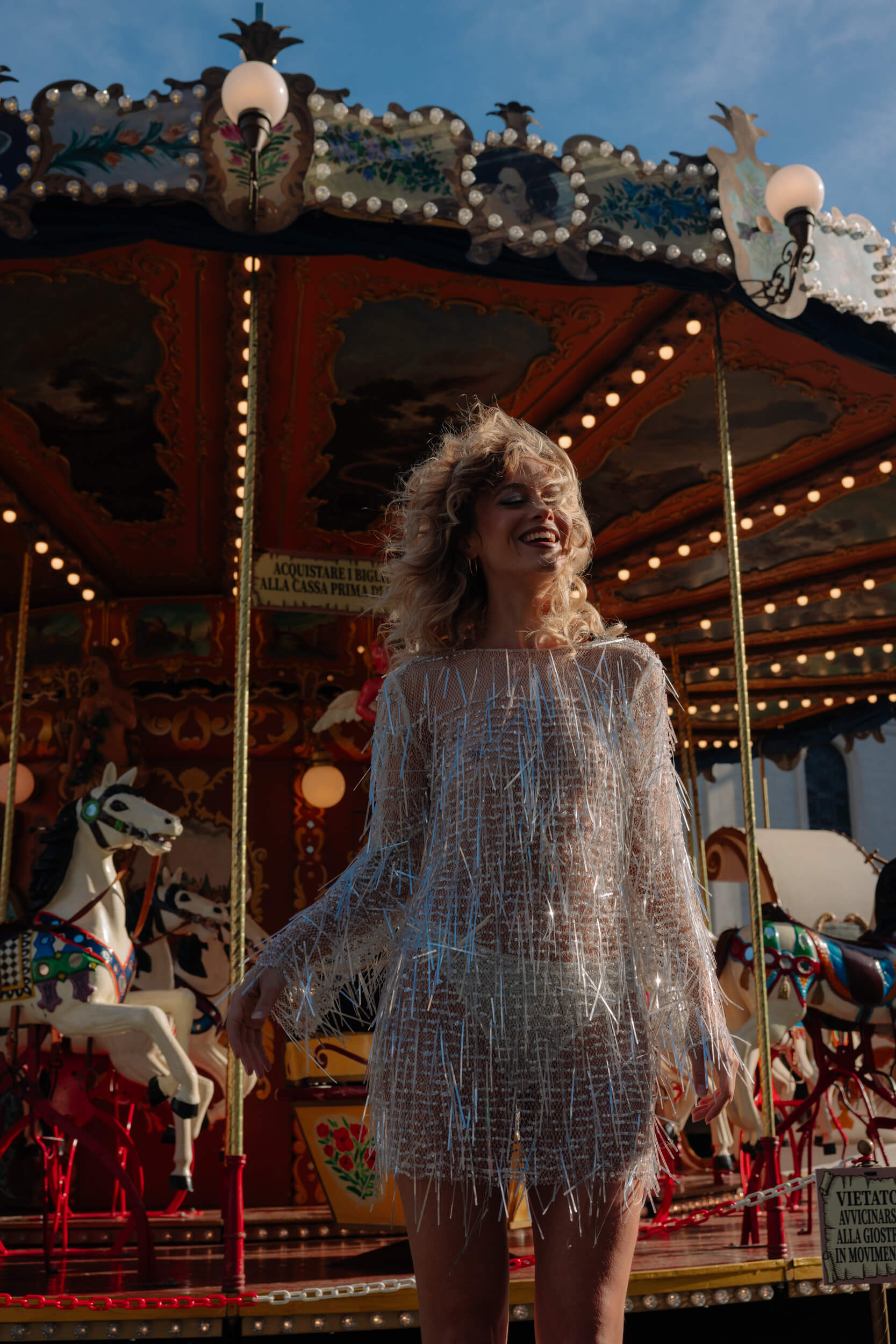
What was the most challenging moment during filming? Is there a scene or moment that you think you will never forget?
The most challenging phase was the preparation and study. I spent hours and hours, for months, watching videos, practicing Moana’s voice, trying to find movements similar to hers. The work I did with the series’ acting coach, Ilenia D’Avenia, was crucial during this phase. Confronting myself with her enriched me a lot, and I am proud of the work we did together. Certainly, the on-set preparation phase was also very challenging, lasting 4 hours (I wear breast prosthetics that are applied each time), so if, for example, filming started at 8 in the morning, my makeup and hair preparation began overnight. I think I will never forget the “theater scene”, as I call it, and when you see it, I think you will understand what I mean. I can’t spoil anything, but it’s a scene I prepared for a long time and in which I really challenged myself. I don’t think I’ve ever had so much fun shooting a scene since I started this job; it made me feel powerful.
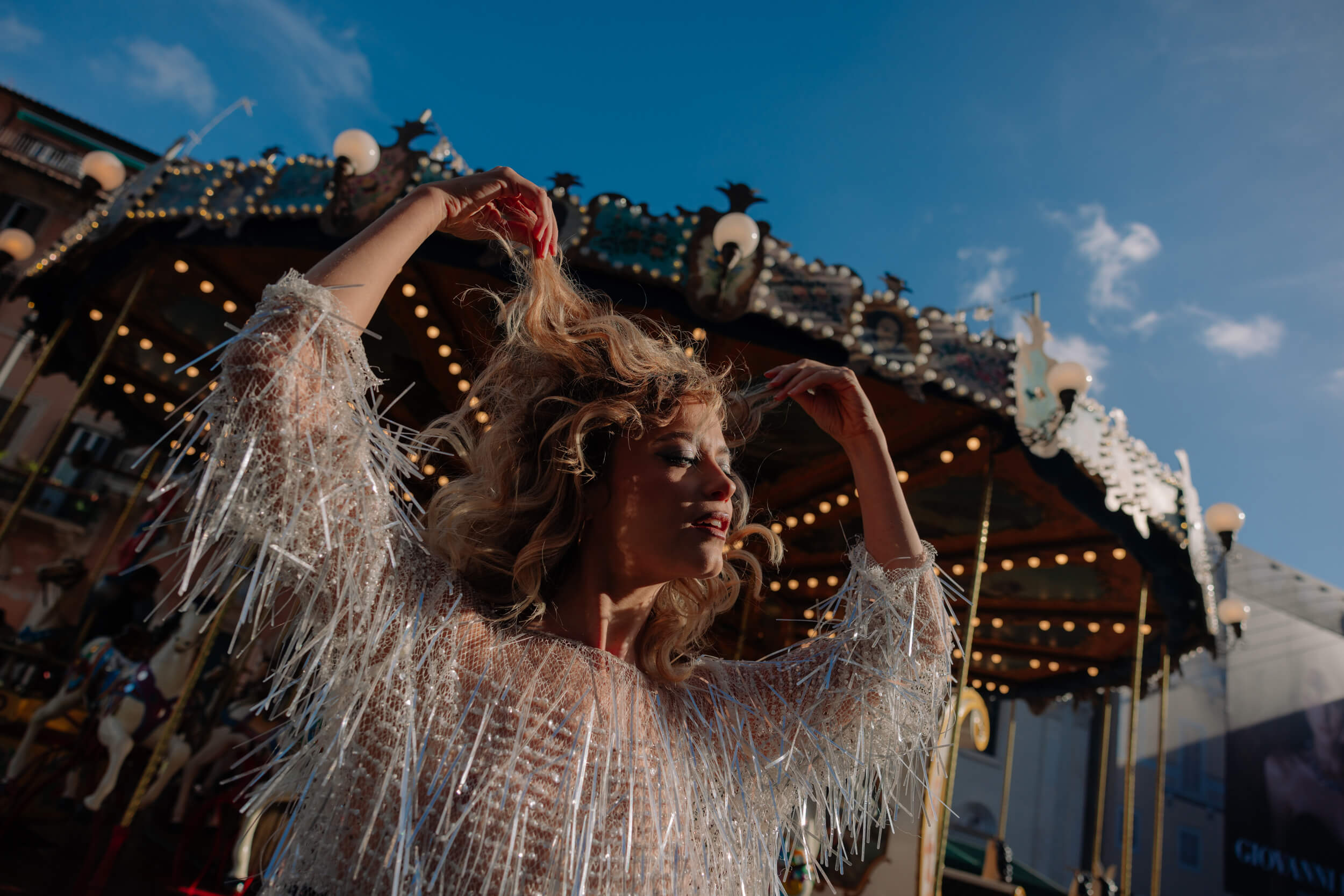
Alessandro Borghi plays Rocco Siffredi. How did you work together to develop the dynamics between your characters?
Alessandro is a very powerful and generous scene partner. Before filming started, we did some rehearsals together, and it was immediately clear to me that his presence on stage was very strong. When it’s like that, the emotional exchange between characters happens quite automatically. A nice synergy of mutual respect and play developed, which undoubtedly helped us avoid any embarrassment in the more intimate scenes. When you feel so comfortable with a colleague, it indicates that you are working with a great professional. It was very nice to share the set with him.
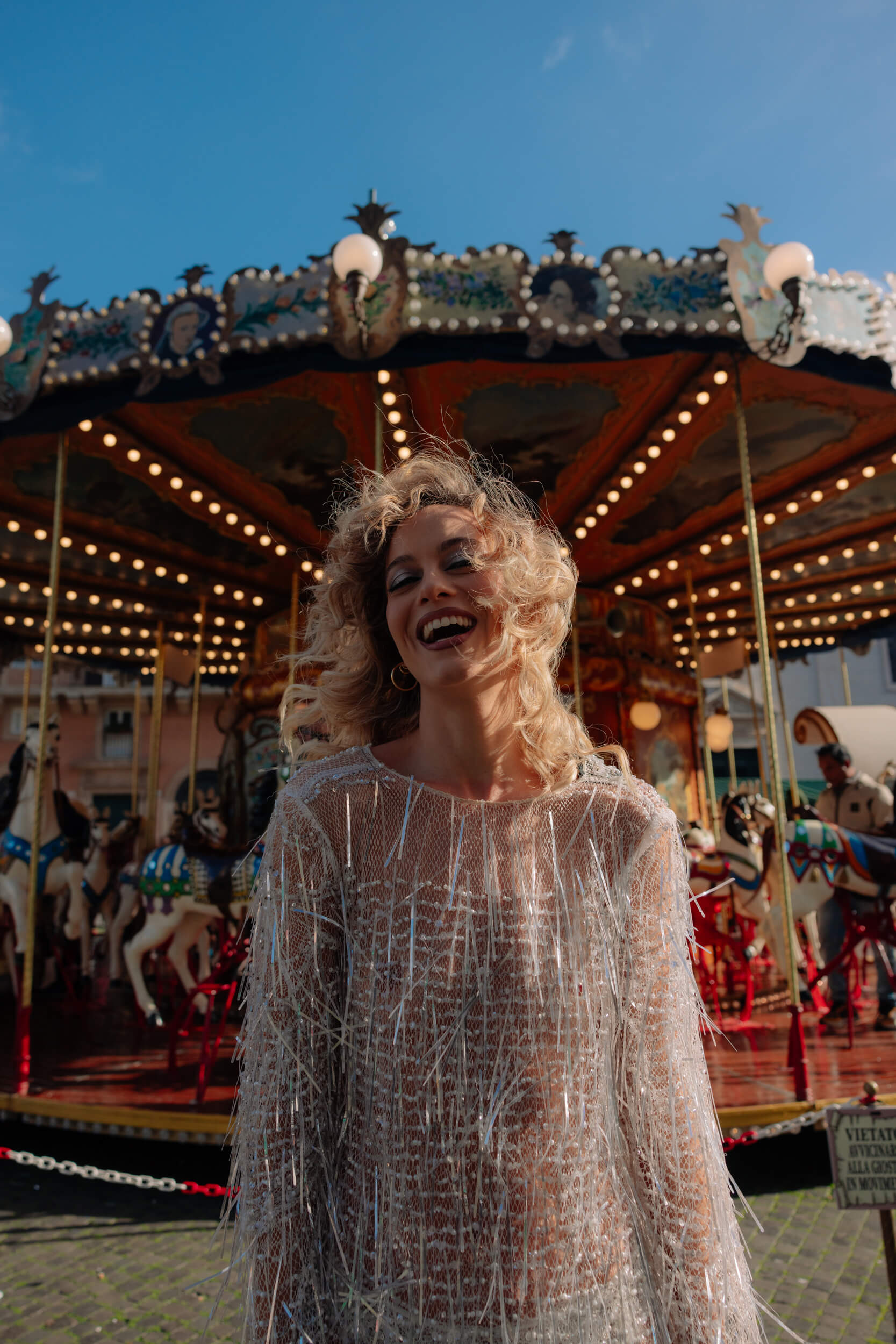
What do you hope the audience will take away from watching “Supersex”, and what message do you think the series conveys about sexuality and life choices?
I think “Supersex” is primarily the story of a man: his life, his relationship with love, his contradictions, and his pains. Expanding the perspective, there is the story of the porn world, and thus of sex and sexuality, which is a very complex theme. To tell it means to touch very delicate chords: modesty, shame, freedom, the identity of each of us, because I believe that sexuality encompasses all of this. The strength of the series lies in honestly narrating such a controversial world, rejecting both gloss and moralism. It is also a story about freedom, about what it means to make free life choices when they are not accepted by the people around you and society. Ultimately, Rocco – like Moana – chose his life, and had sex become his language and job, facing all the related consequences: love, disdain, judgment, fame, pain. I think it’s a very rich, complex, and courageous narrative.
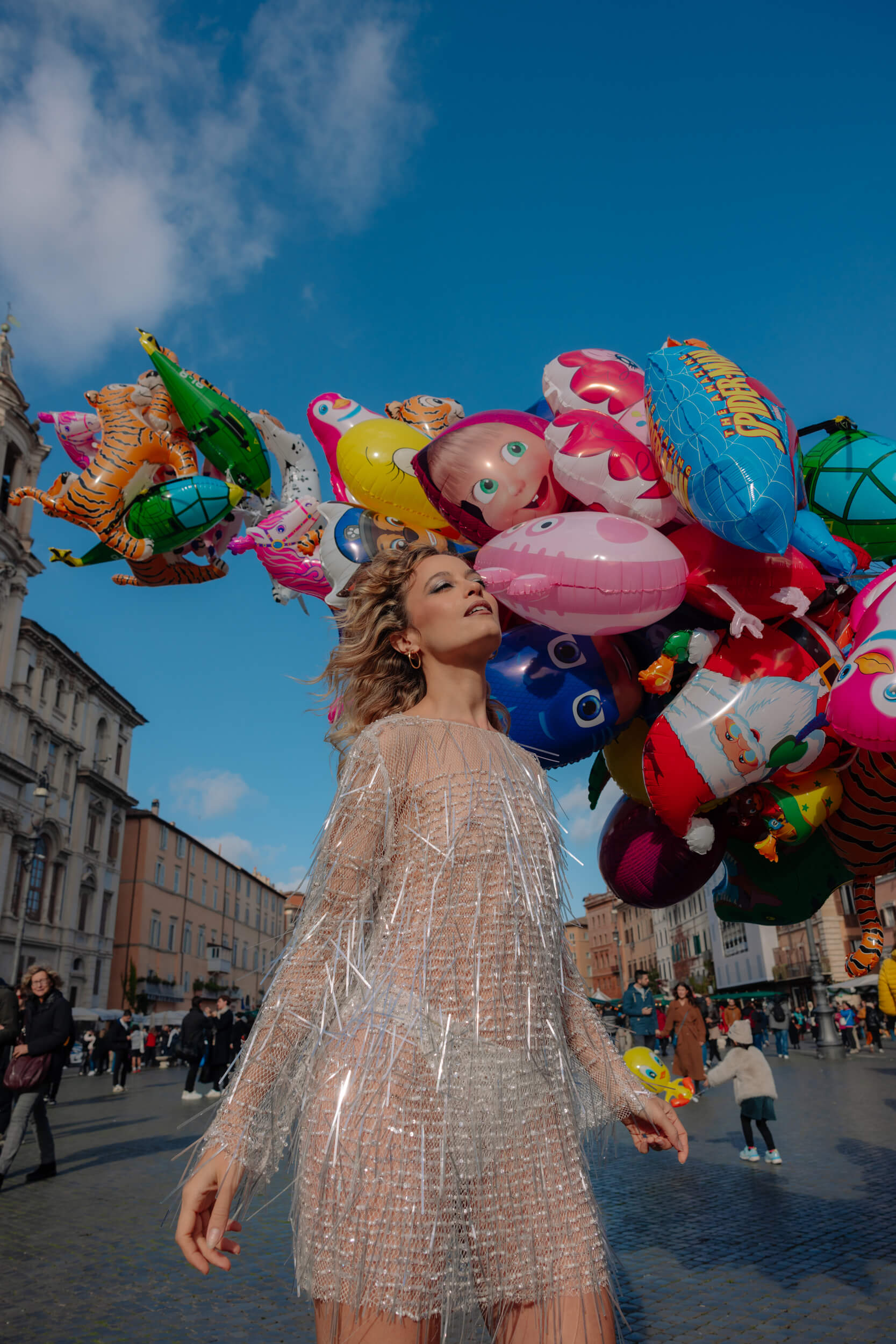
“The strength of the series lies in honestly narrating such a controversial world, rejecting both gloss and moralism.”
An epic fail on set?
A few days ago, I was waiting in the dressing room on set. At some point, I decided to enter the theaters where they were shooting to see how far they had progressed. I approached one of the entrances – usually, if they are recording at that moment, a red light or someone is blocking the door because absolute silence is crucial between action and stop to avoid compromising the scene’s audio and actors’ concentration. No light, no guard, so I entered calmly. The door creaked echoing throughout the theater – in absolute silence. I saw a production guy emerge from a corner, making frantic gestures with his arms – they were filming! At that point, I clumsily tried to remedy the situation, tiptoeing away like Sylvester the Cat to hide in the costume department, but I was wearing heels, so even my sneaky footsteps created a terrible echo. They called a stop, and I heard the director yelling, “Who was that?!?!?”. Of course, they caught me, they had to redo the take, and I became the joke of the day.
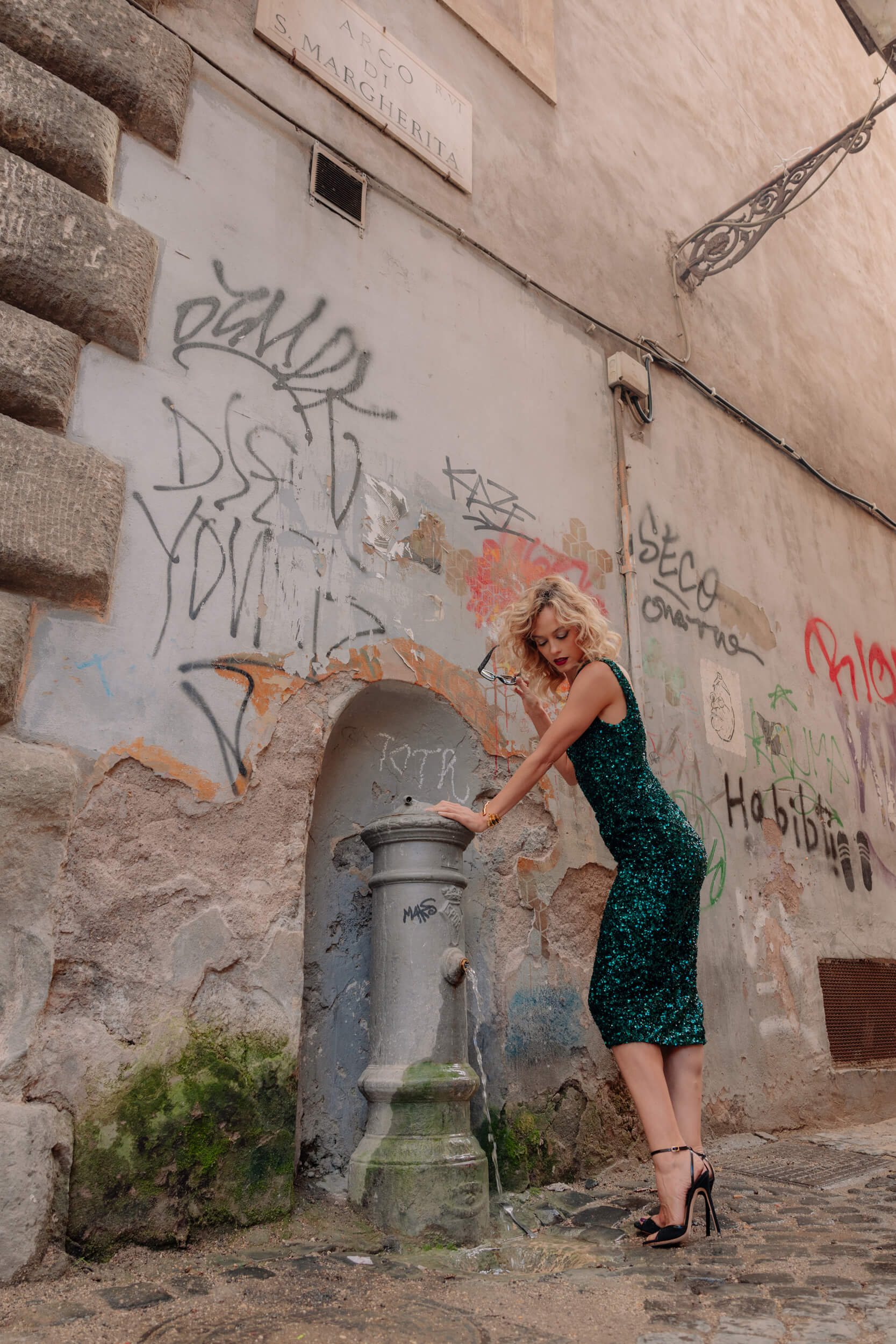
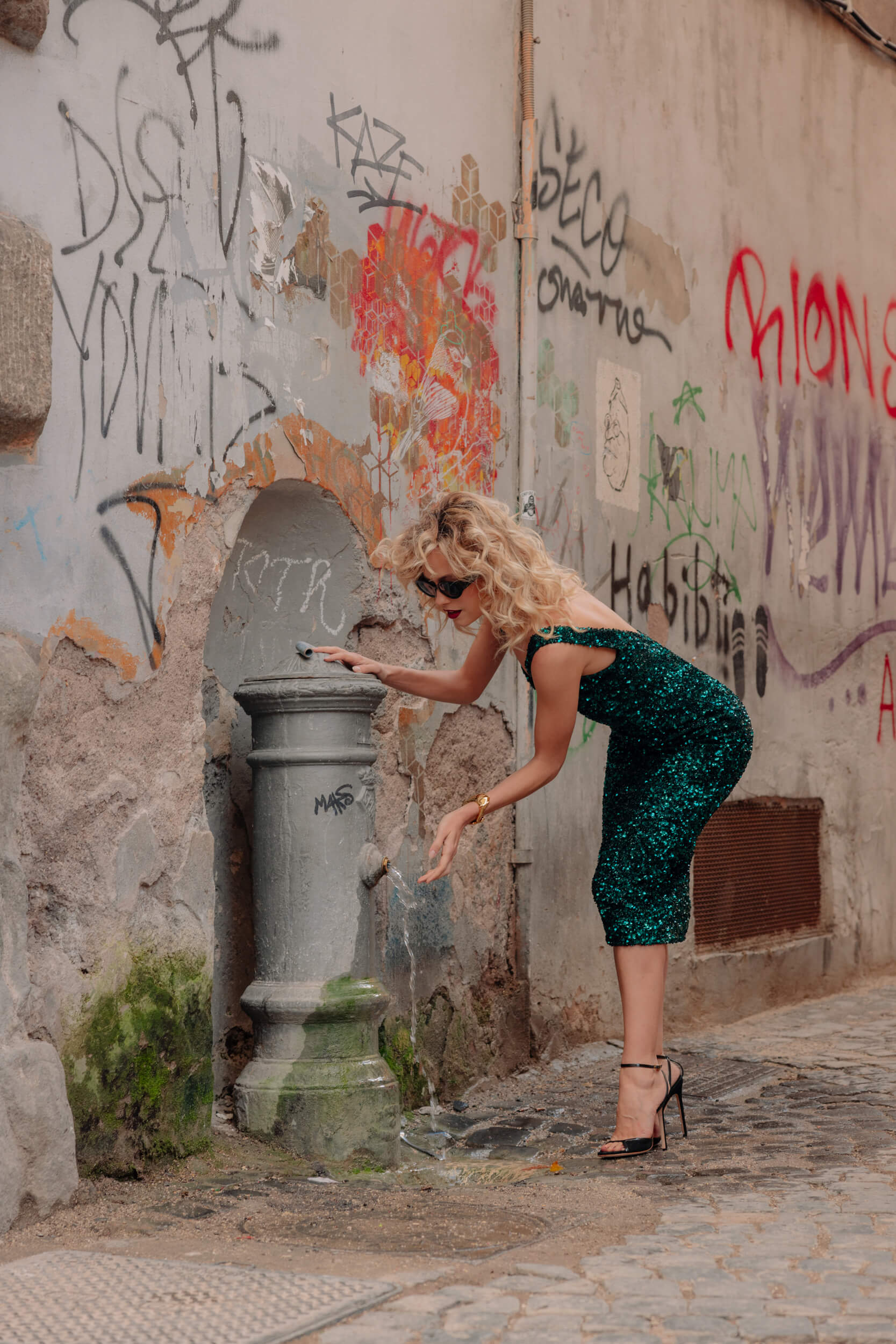
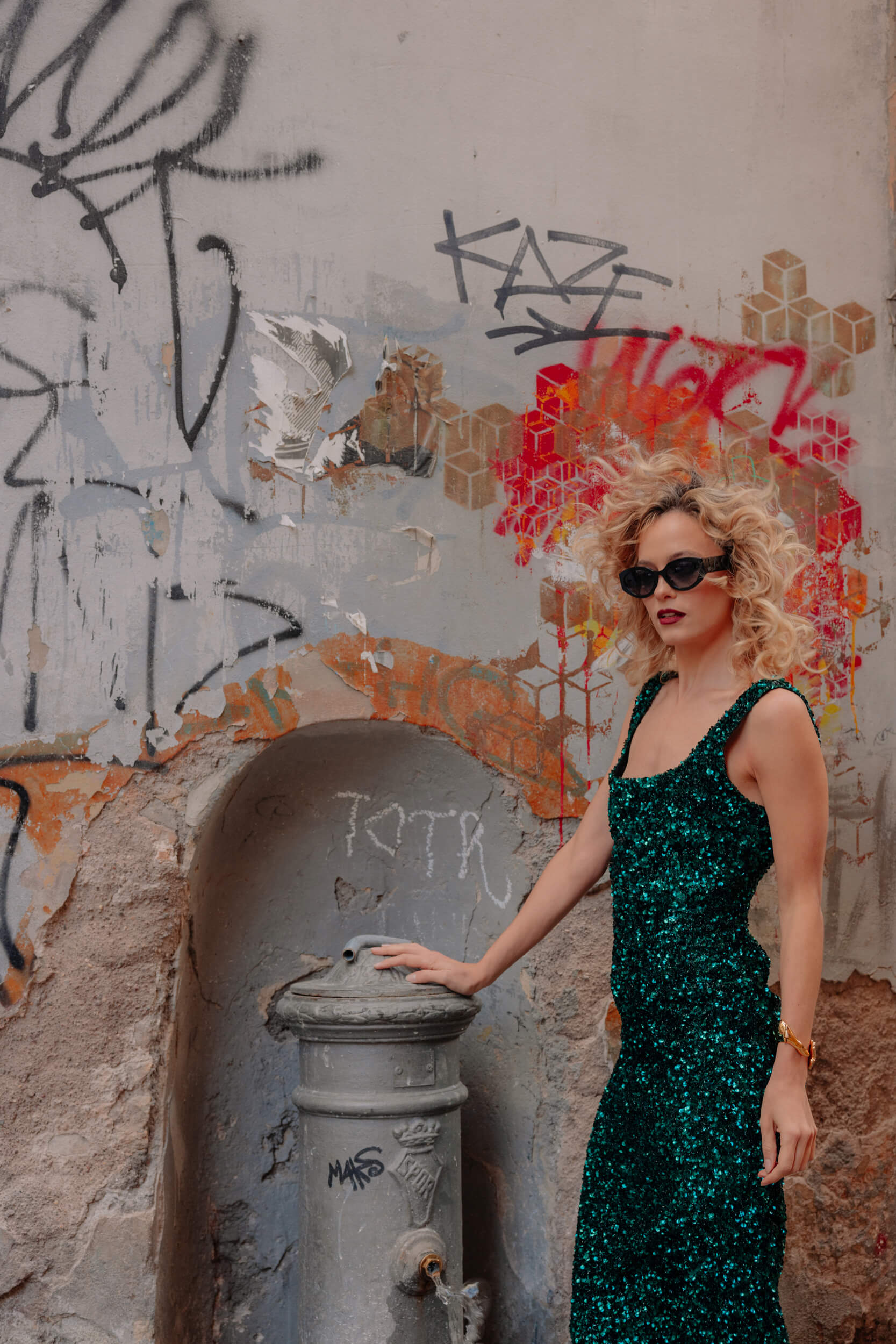
Your must-have on set?
When I’m shooting, I always have to have my scripts with me, where I take lots of notes to contextualize the scene and give myself emotional anchors. The only thing is that I have to hide them afterward: if someone found and read what I write, it would be terrible; these are very personal things. And then… food!
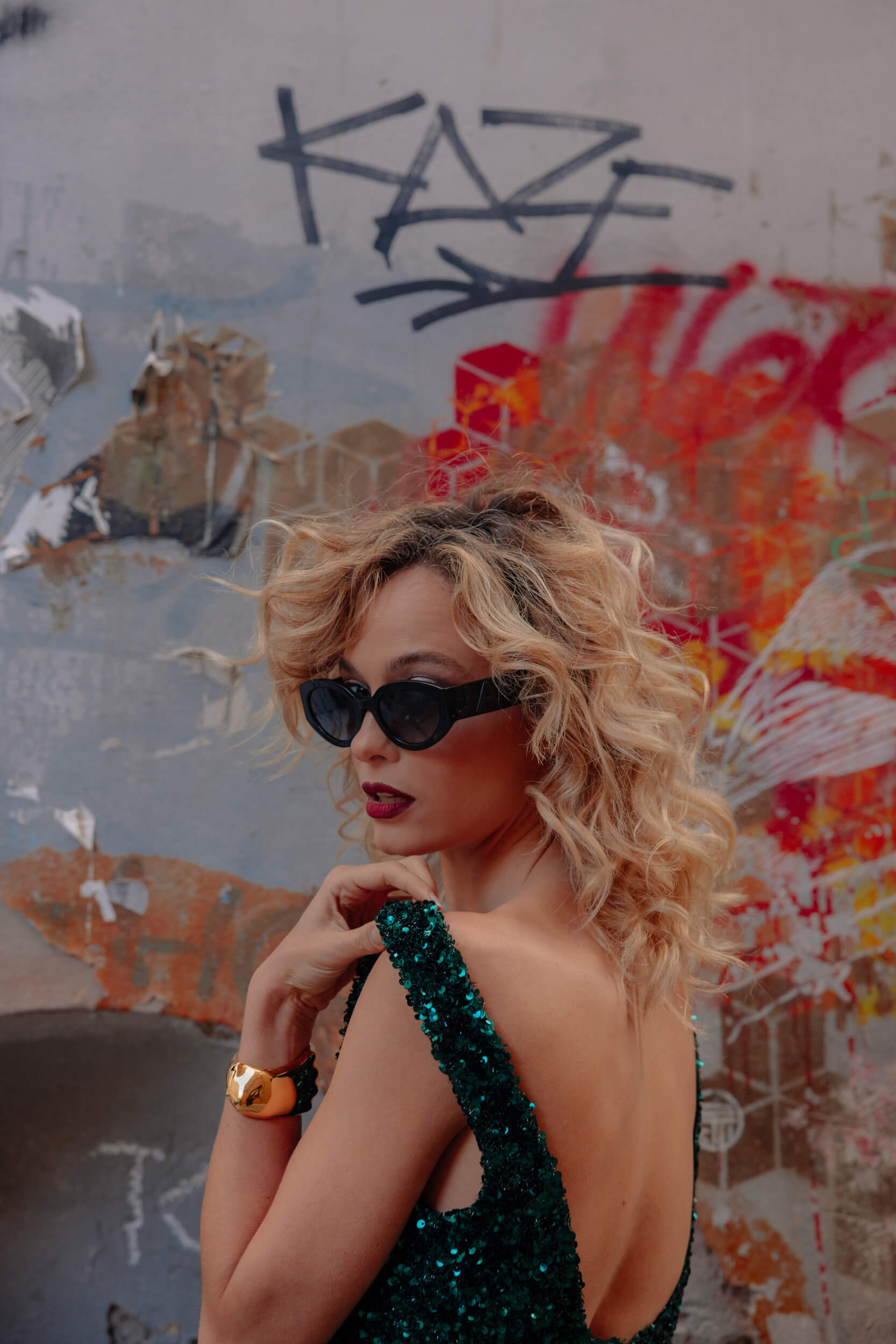
The book on your nightstand right now?
I alternate between two: “L’ultimo giro di giostra” by Tiziano Terzani and “The Soul’s Code” by Hillman.
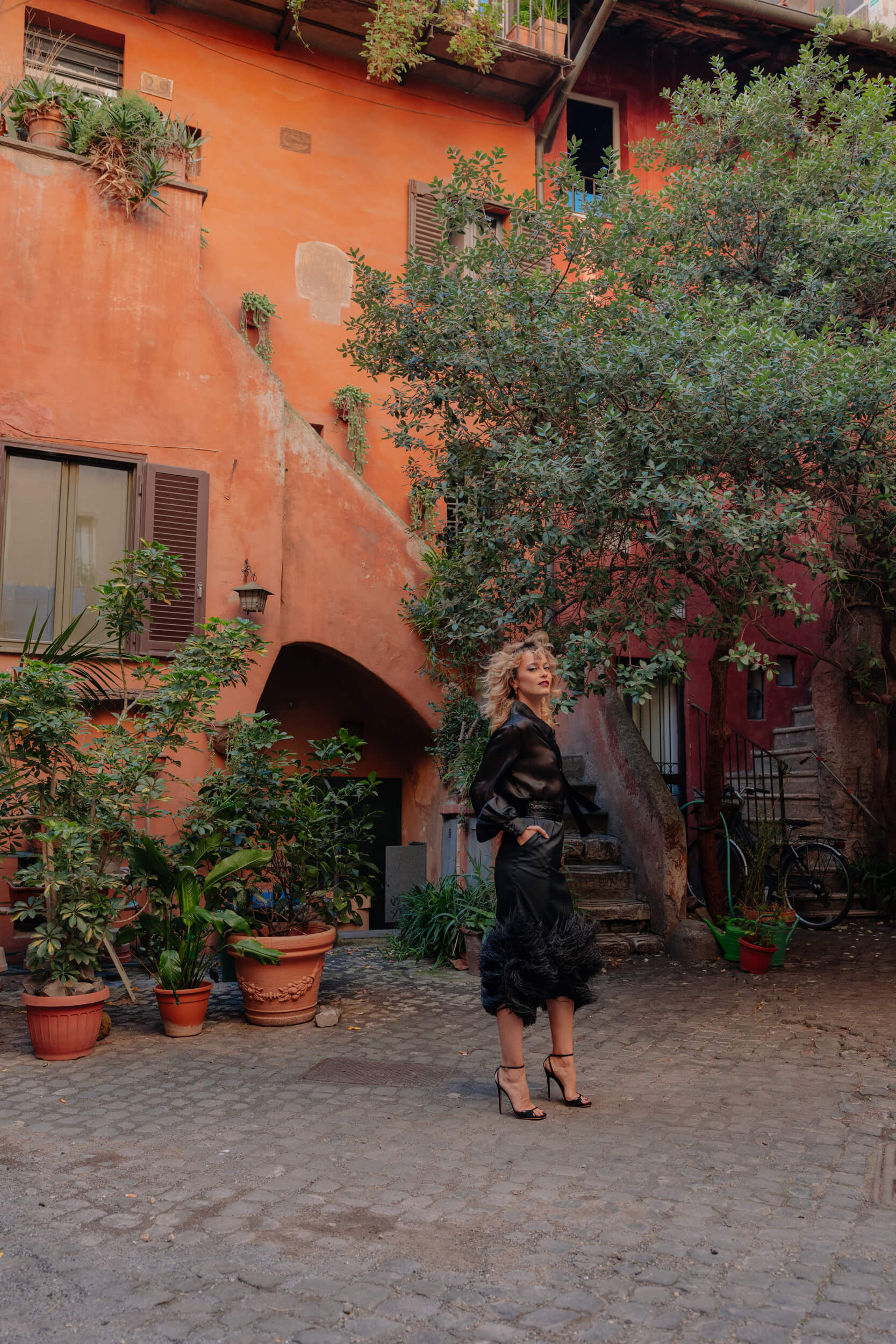
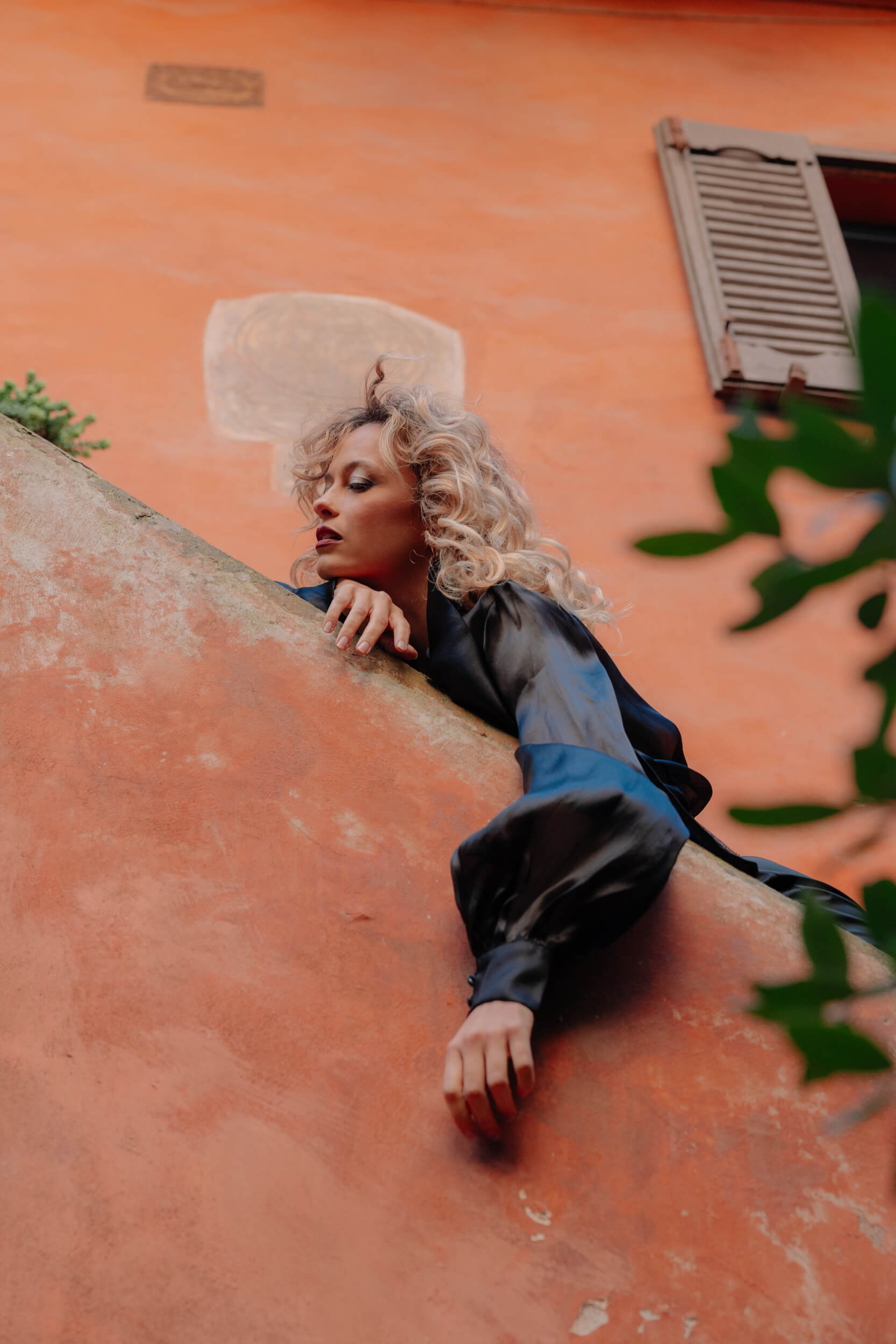
What was your biggest act of rebellion?
Moving out and living on my own at 18, supporting myself independently.
And the bravest thing you’ve ever done?
I always said “I love you” when I felt it, without expecting anything in return. And indeed, I received “thank you” in response, but that’s okay.
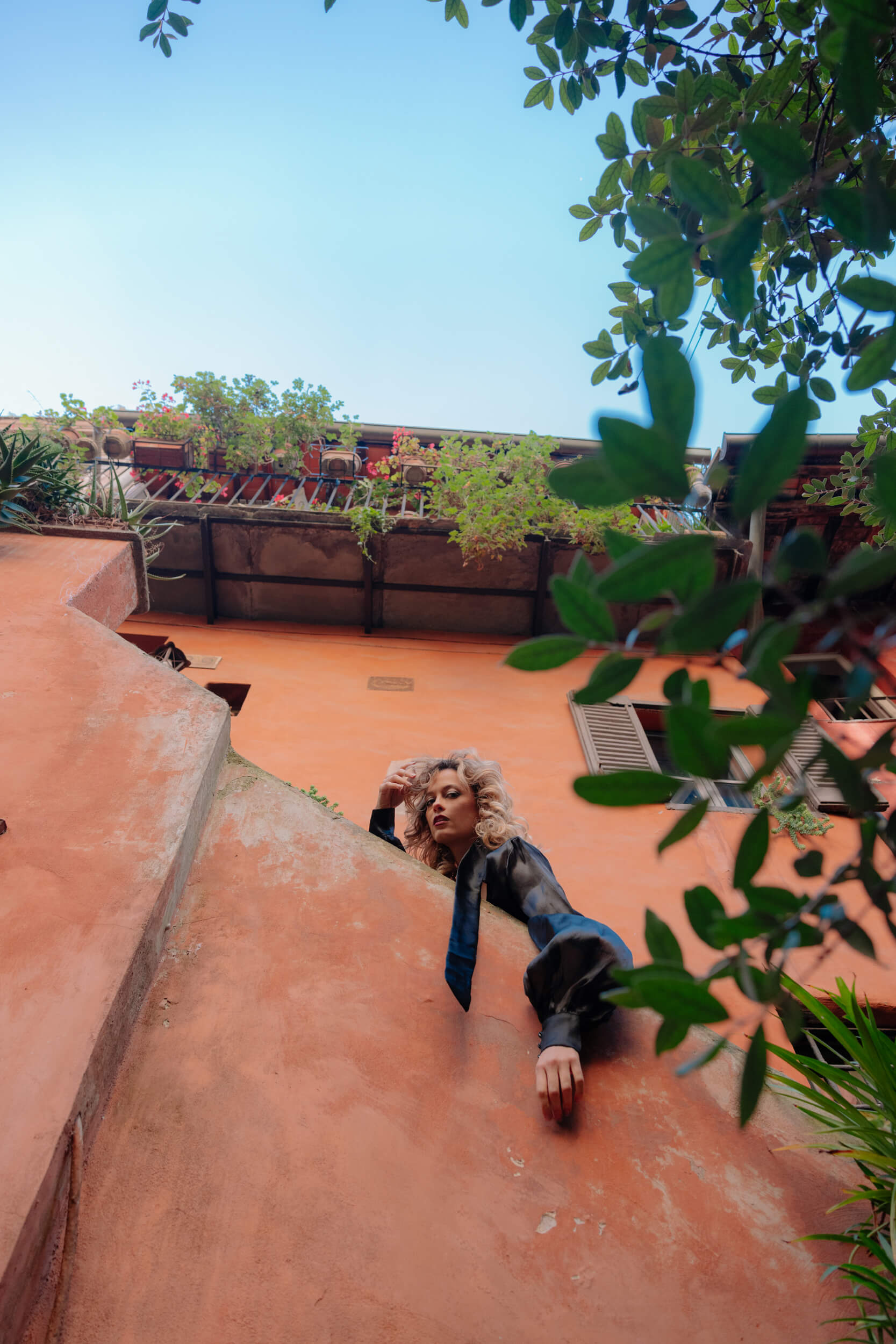
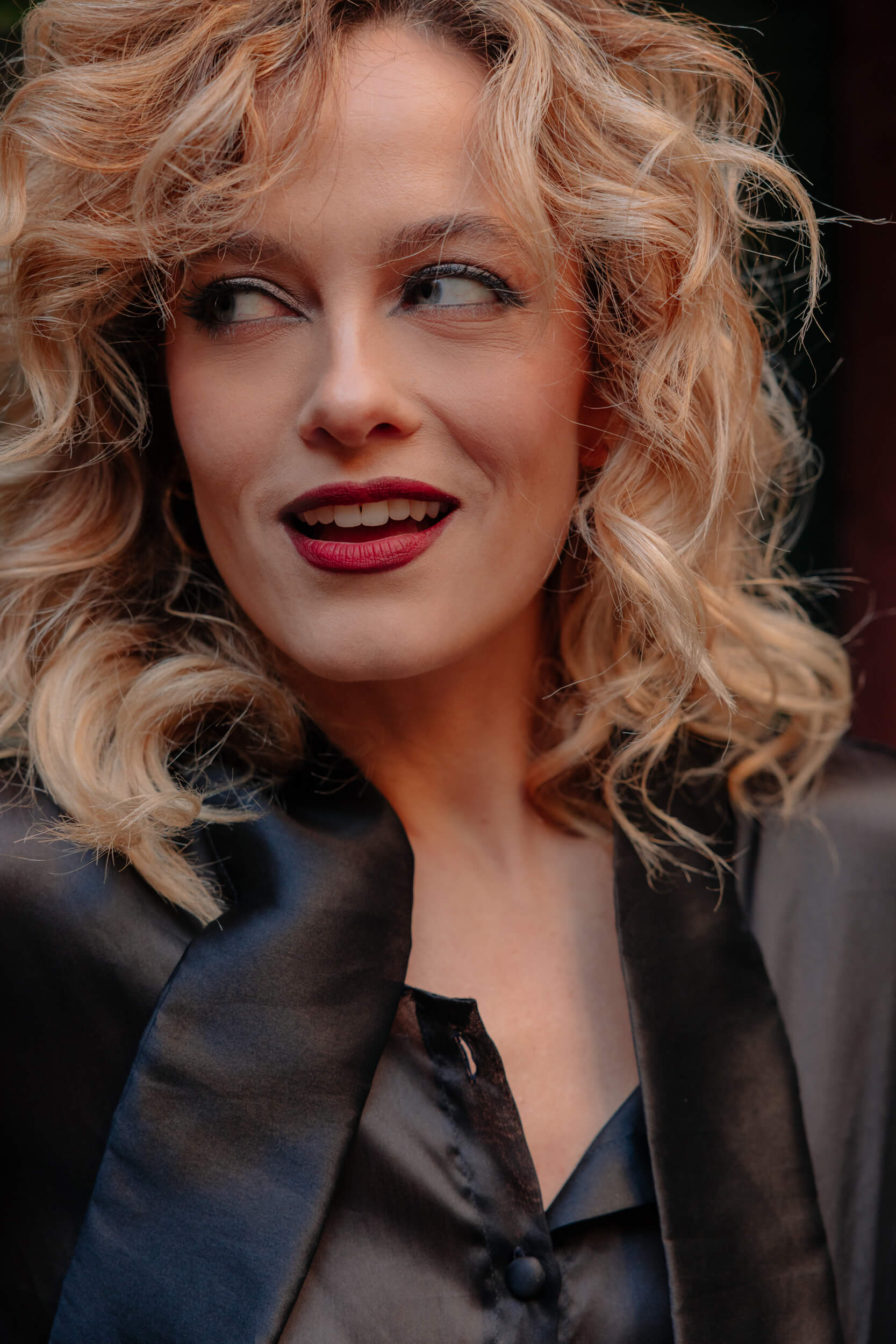
What are you afraid of?
I use fear as a driving force. So, I could tell you anything and nothing.
What, on the other hand, makes you feel safe?
My home.
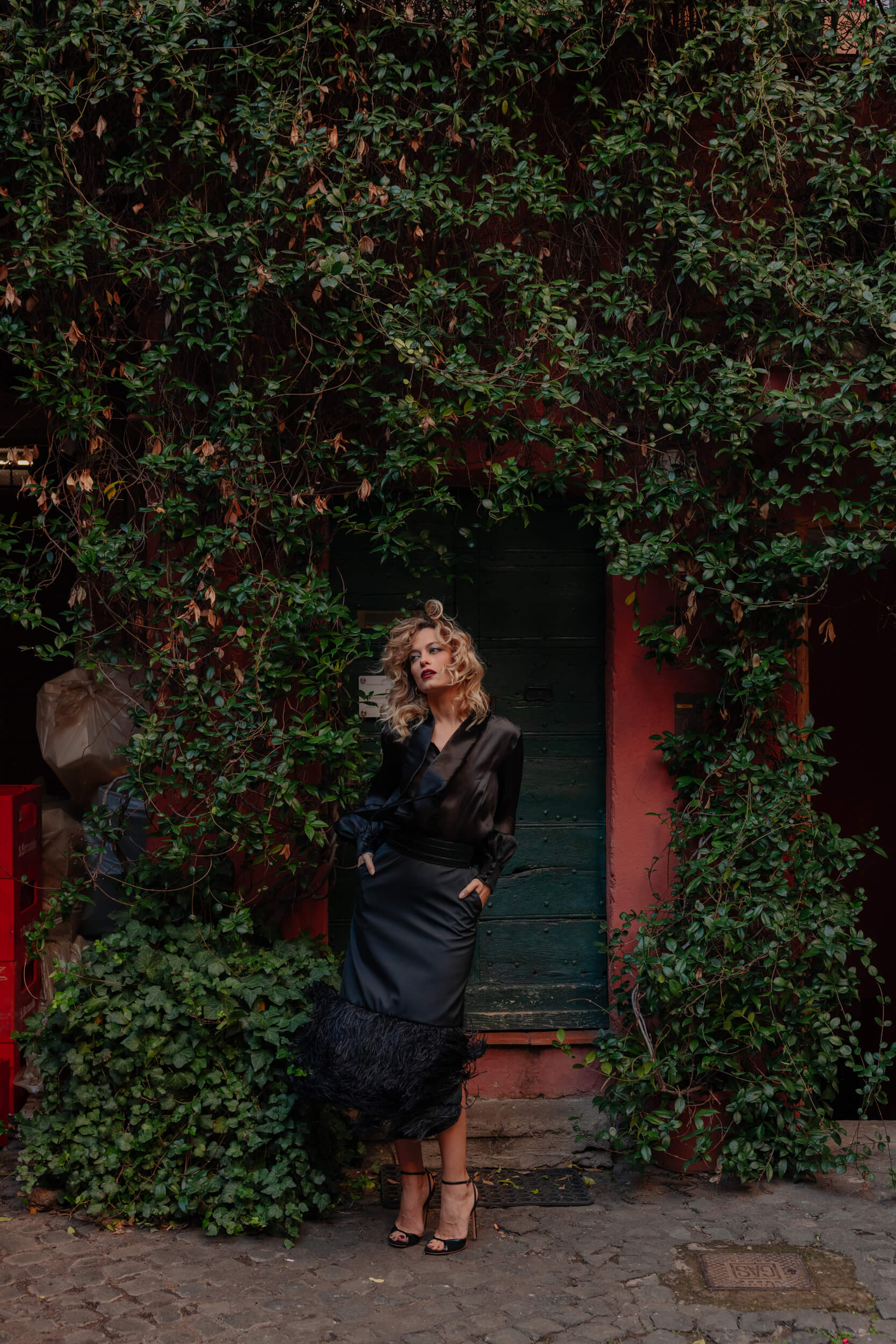
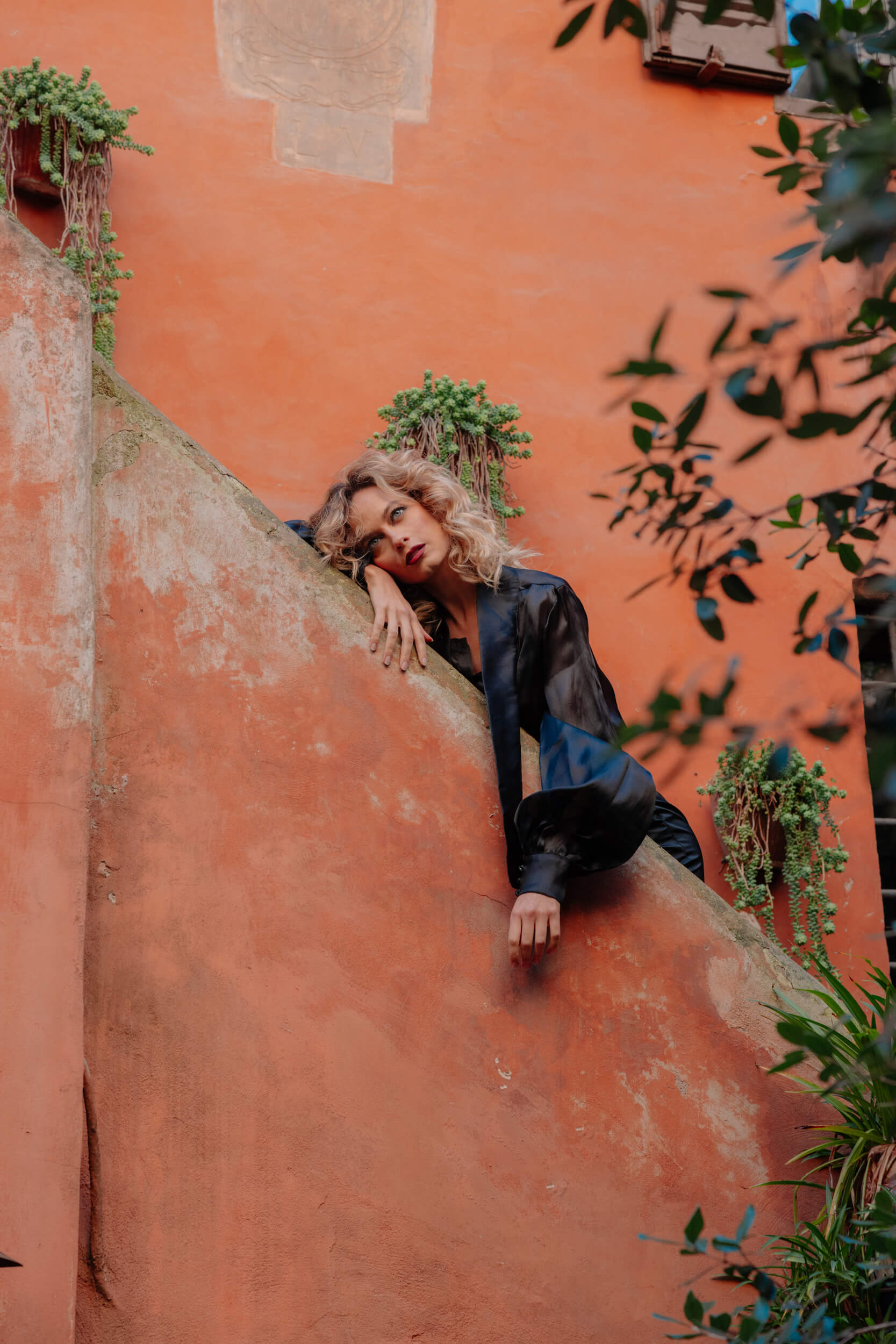
The latest person or thing that made you smile?
While answering your questions, I dropped some cookies with jam on my shirt and then on the floor, spreading them everywhere. Initially, there was a moment of dismay and frustration, followed by a good laugh.
What does feeling comfortable in your own skin mean to you?
Looking in the mirror and wanting to smile at yourself.
What’s your happy place?
Besides my home and those inside it, the beach volleyball courts where I train and play with my group of friends.
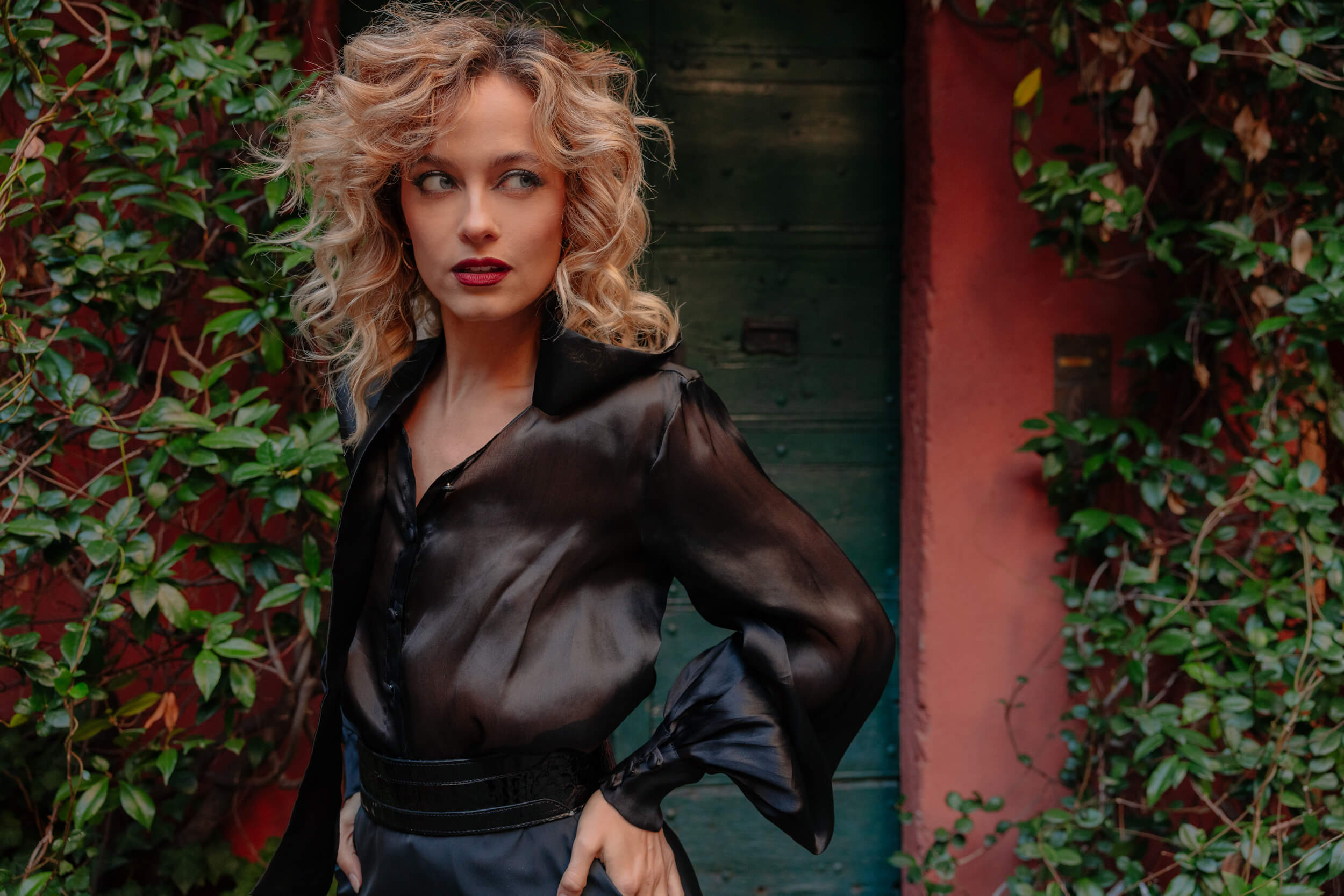
Photos & Video by Johnny Carrano.
Makeup and Hair by Micaela Ingrassia.
Styling by Valeria J Marchetti.
Styling Assistant Allegra Palloni.
Thanks to Lapalumbo Comunicazione.
LOOK 1
Coat: Vivetta
Stockings: Calzedonia
Shoes: Casadei
LOOK 2
Dress: Antonio Riva
Shoes: Loriblù
LOOK 3
Dress: Ginevra Odescalchi
Jewels: Bernar Delettrez
Sunglasses: Marc Jacobs
Scarpe loriblù
LOOK 4
Shirt: Anna Giulia Firenze
Skirt: Sara Roka
Shoes: Loriblù

